






Kids are getting their back-to-school checklists, and we’re here to help! Let us care for your entire family and make this their healthiest school year yet!
With nearly 20 locations and more than 340 providers, Lakeland Regional Health makes booking visits like sports physicals and annual appointments easy for your loved ones.
Need an appointment soon? Some of our convenient locations are accepting new patients with same-day appointments.
Find the right provider at myLRH.org/Care or call 863.284.5000 to make an appointment .







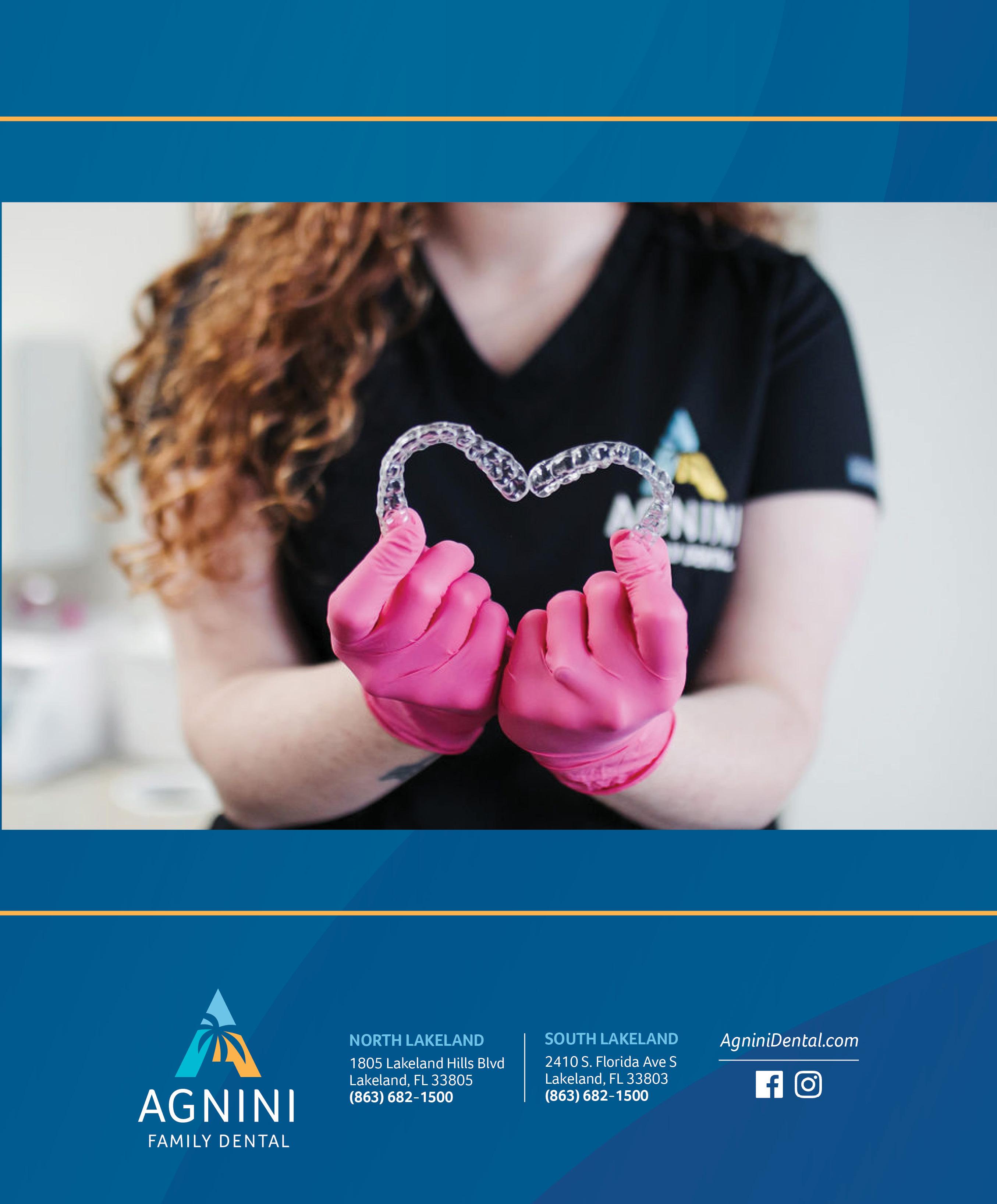




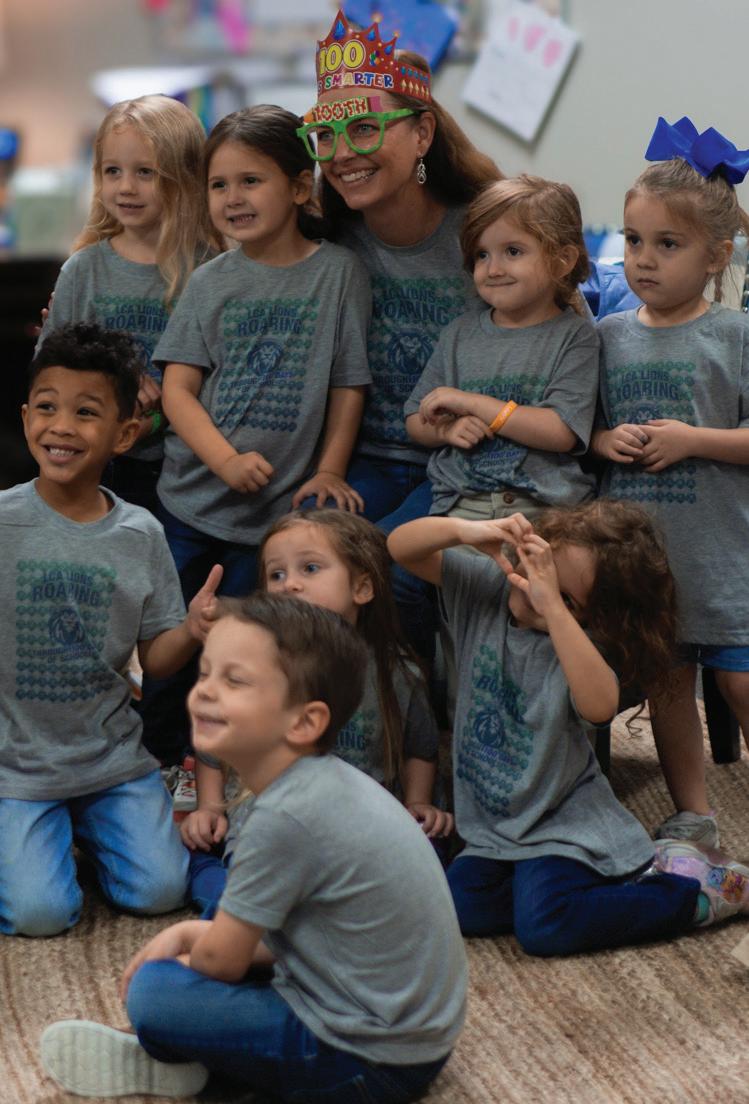
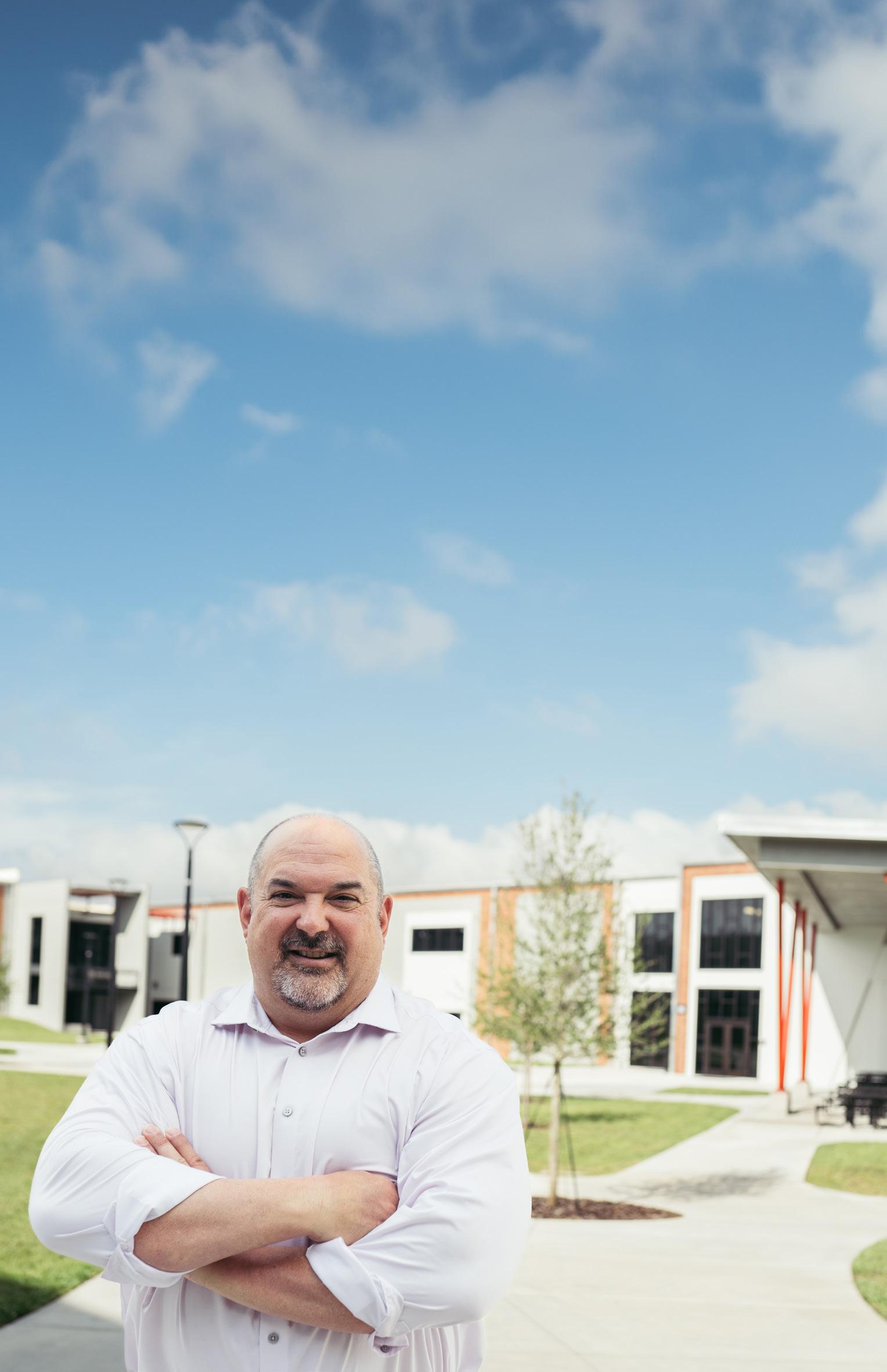
Stories by RJ WALTERS









story by ADAM SPAFFORD



EDUCATION

PUBLISHER
Curt Patterson
ASSOCIATE PUBLISHER OPERATIONS
Jason Jacobs
EDITOR, CONTENT STRATEGIST
RJ Walters
CREATIVE DIRECTOR
Jonathan Sierra
VP, FINANCE
Deb Patterson
GENERAL COUNSEL
Ted W. Weeks IV ISSUE 103
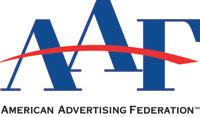
ADVERTISING
ADVERTISING DIRECTOR
Curt Patterson | 863.409.2449
ADVERTISING SALES
Jason Jacobs | 863.606.8785
Sharon Blackburn | 813.789.4361
CONTRIBUTORS
Adam Spafford
Alexa Estevez
CREATIVE
DIGITAL MEDIA PRODUCER
Jordan Randall
GRAPHIC DESIGNERS
Allie Brinton
PHOTOGRAPHERS
Jordan Randall
Dan Austin
Noelle Gardiner
CIRCULATION
CIRCULATION DIRECTOR
Jason Jacobs
DISTRIBUTION
David Heideman
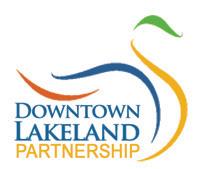




Public COLLEGE in the Southeast U.S. #1
Nationally Ranked
20 Public
PROGRAM without a Ph.D. BEST VALUE PUBLIC SCHOOL in the Southeast U.S. #2
Florida Poly is a dynamic institution designed to aggressively push the limits of engineering education. With industry-driven programs, leading faculty, and cutting-edge facilities, the University is building a strong pipeline of in-demand, high-skilled STEM professionals prepared to innovate and take on the high-tech challenges of tomorrow. As the state’s only all-STEM public university, Florida Poly graduates earn the highest salaries among all state universities one year after graduation.

dvanced placement courses. Dual enrollment. Career academies.
International
Baccalaureate options. Pathways for post high school success.
Polk County Public Schools offers markedly more options for its students than I had growing up in an educated white collar town in the Midwest—yet its current rankings and grades are proof it is still a long way from where it needs to be and where leadership expects it to get.
Trying to articulate the wins and losses and challenges and opportunities of a school district that serves a student population a quarter of the size of the state of Wyoming is like trying to teach a bunch of rowdy 7th graders algebra. It can be done, but it’s not always going to be pretty.
On one hand, our graduation rate is 10 percent below the state average, our district has earned a ‘C’ grade 8 of the past 10 years (excluding 2020) and it’s still an ongoing struggle to get enough qualified teachers to passionately pursue the best for a diverse and ever-growing population of students. It’s true that not every need of every student has been or is adequately met—and the reality of being one of the 10 least funded districts (per student) in the state is a tough spot to be successful from. I know real stories of parents and children who feel they have been let down in some regard, and as a parent of five (going on six) kids in PCPS schools I have grievances that I have shared with people who can help navigate them.
Superintendent Fred Heid does not shy away from those facts and experiences of parents like me; instead he embraces a way forward that invites every person in the community to play a role in the success of public education, and he is bent on building a new standard of excellence.
Every time I have the privilege of speaking to him I am inspired by how he manages to be an advocate and leader for families, students and teachers all at once by transparently stating district improvement plans and calling on parents and students to share in the responsibility of utilizing a child’s K-12 development as a springboard
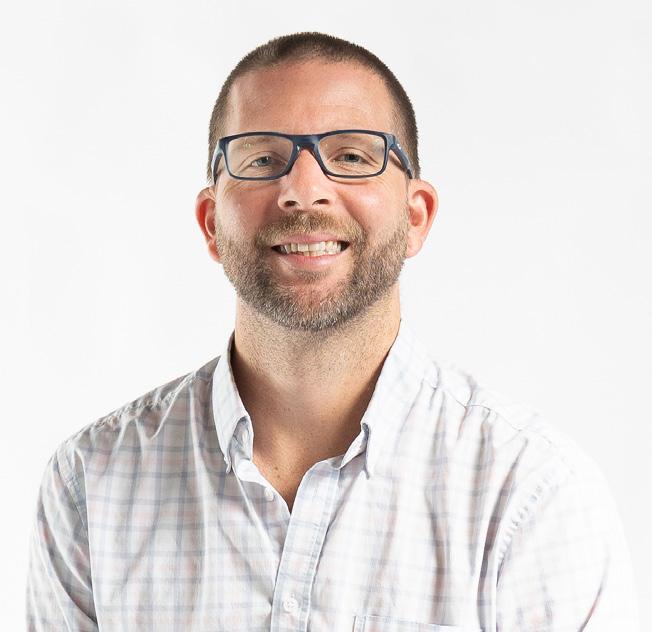
for what comes next.
He understands the significance of his role and he spends his days making plans, not excuses.
“Until 100 percent of our kids can read on grade level and our kids can perform mathematics on grade level, we’re not done,” he shared with me recently. “I’m always careful to remind [principals] that we don’t have excuses when a kid starts with us in kindergarten and ends with us in 12th grade. If a kid gets from kindergarten to grade 12 and can’t read on grade level, we failed somewhere…and we have to take ownership of that.”
The best way for us all to take ownership of developing a better school district is to lean into where we are headed. In this issue we take you behind-the-scenes and find corporate partners like Lakeland Regional Health, Orlando Health and MidFlorida Credit Union creating real-life experiences and career pipelines to excite and educate the upcoming generations.
We introduce you to technology platforms and new initiatives built to address specific needs that hone in on improving graduation rates and post high school opportunities.
We give you the chance to see the progress being made and consider how you might be a catalyst in your own small way to help the district become everything the students of today and tomorrow deserve.

RJ Walters EDITOR
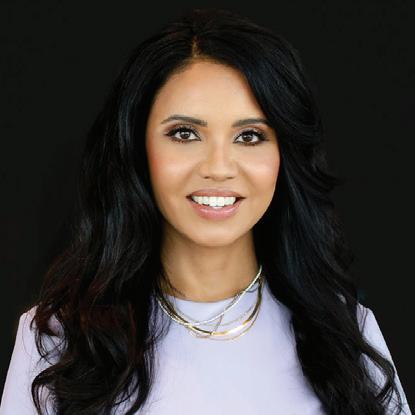
• Facial Rejuvenation (Facelifts, Eyelifts and Minimally Invasive Browlifts)
• Breast enlargement, breast implant revision, lifts and reductions
• Drain free tummy tucks and liposuction
• DaxxifyTM, BOTOX®, Dysport®, Kybella® for unwanted fat, and fillers such as Restylane®, Juvéderm®, Voluma® and RHA for the face and hands
Physician assistant CHALSEY LOCKHART, PA works alongside Dr. Kazmier to provide Clear + Brilliant® Touch Laser treatments, as well as Sciton® and Candela® Gentlemax Pro lasers for hair removal, and treatment of brown spots & spider veins. She also offers injectables including DaxxifyTM, BOTOX®, Dysport® and fillers. Watson
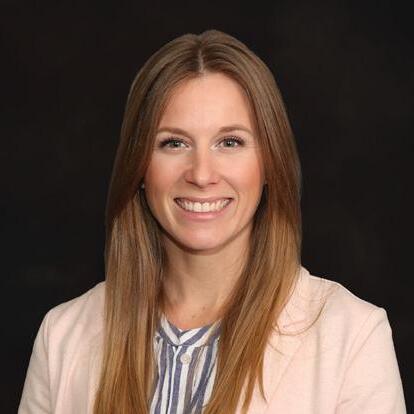












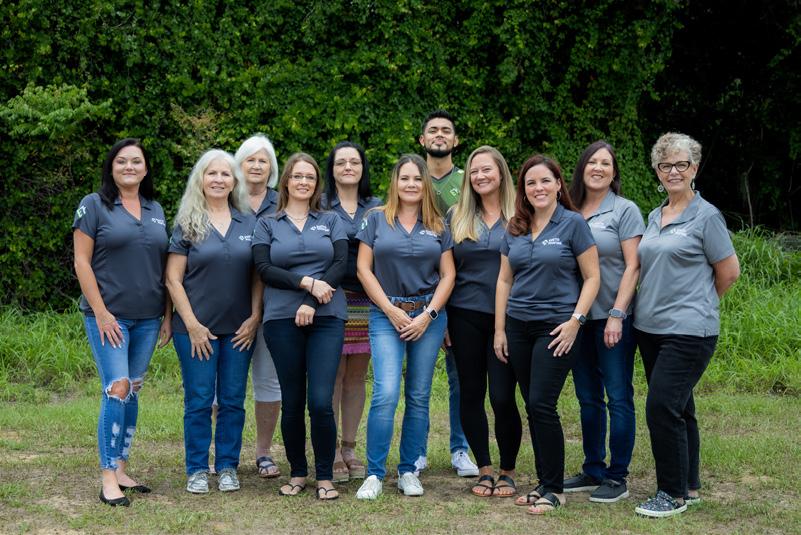
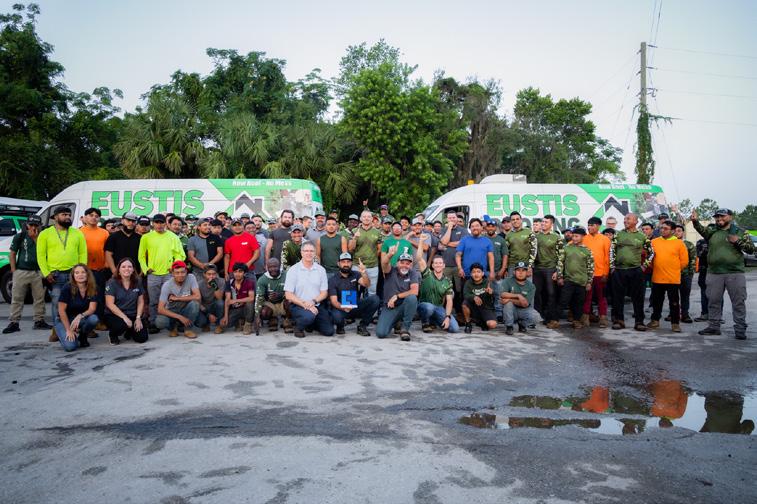





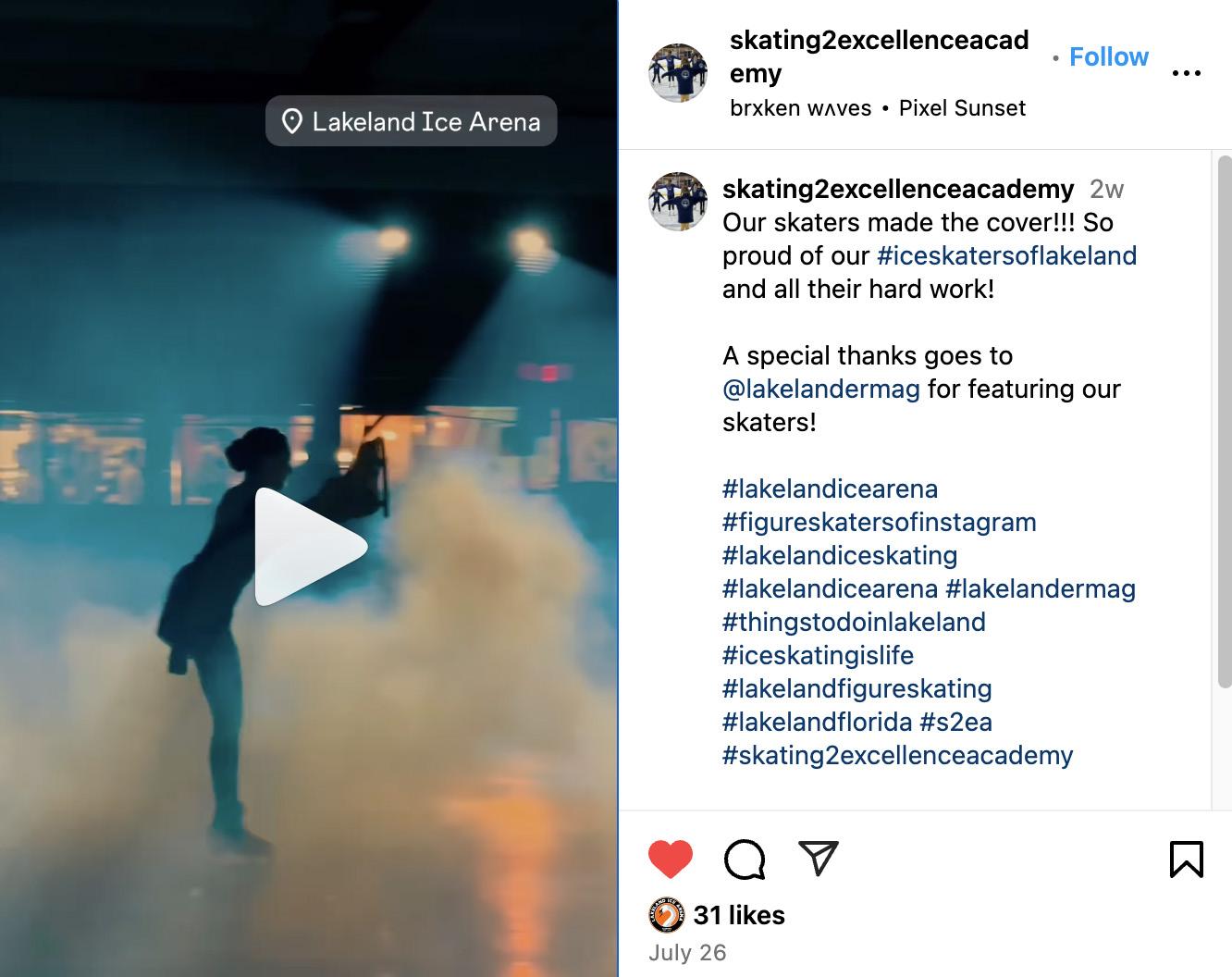




I am a curious writer with a heart for people, and I love creating a space for small businesses, athletes or students to have their story told. Everything I do is to see a smile on someone's face—whether that's designing a poster for a classmate, capturing candid photos at different events, managing projects with my co-workers, or coordinating fun activities for our football games.
I am a Southeastern University (SEU) student majoring in multimedia journalism with a minor in graphic design. Along with my studies, I work two student jobs at SEU: digital marketing manager and athletic production manager.
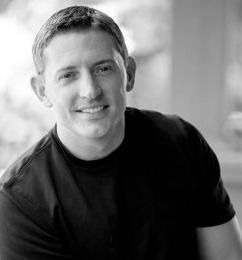
Adam came to Lakeland in 1999 to attend Florida Southern College and, except for a 20-month graduate school stint in Massachusetts, has been here since.
When he’s not writing page-turners for The Lakelander, he trades stock and index options.
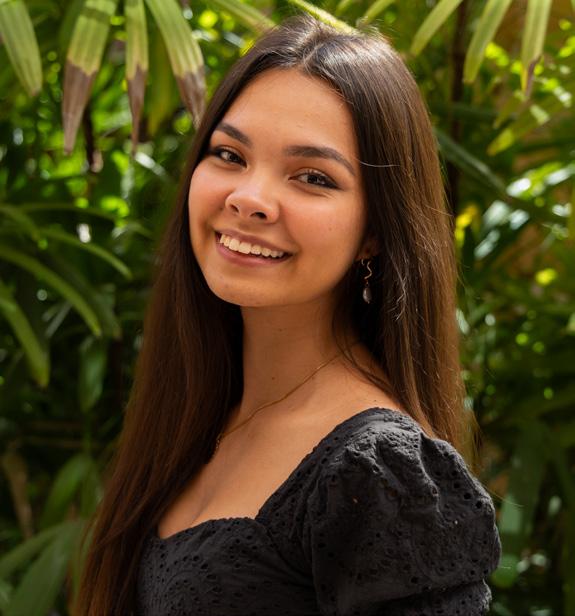
Noelle grew up in Lakeland, and is currently pursuing a dual degree in Media Production and Theatre at the University of Florida. She is passionate about photography and has spent the past year taking theatrical production photos, sports photos, portraits and more in Gainesville and Lakeland.
Her work has been featured by WUFT News, The University of Florida Yearbook, and now The Lakelander! In the future, she hopes to combine her love of the performing arts and her skill with media by pursuing a career in arts marketing.


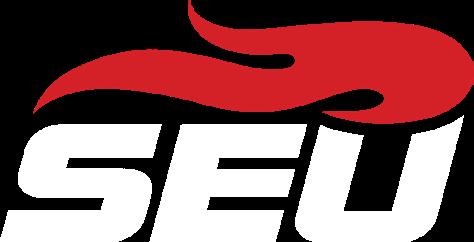
WRITTEN BY ALEXA ESTEVEZ
PHOTOS BY SCOTT PARKER FOR SOUTHEASTERN UNIVERSITY
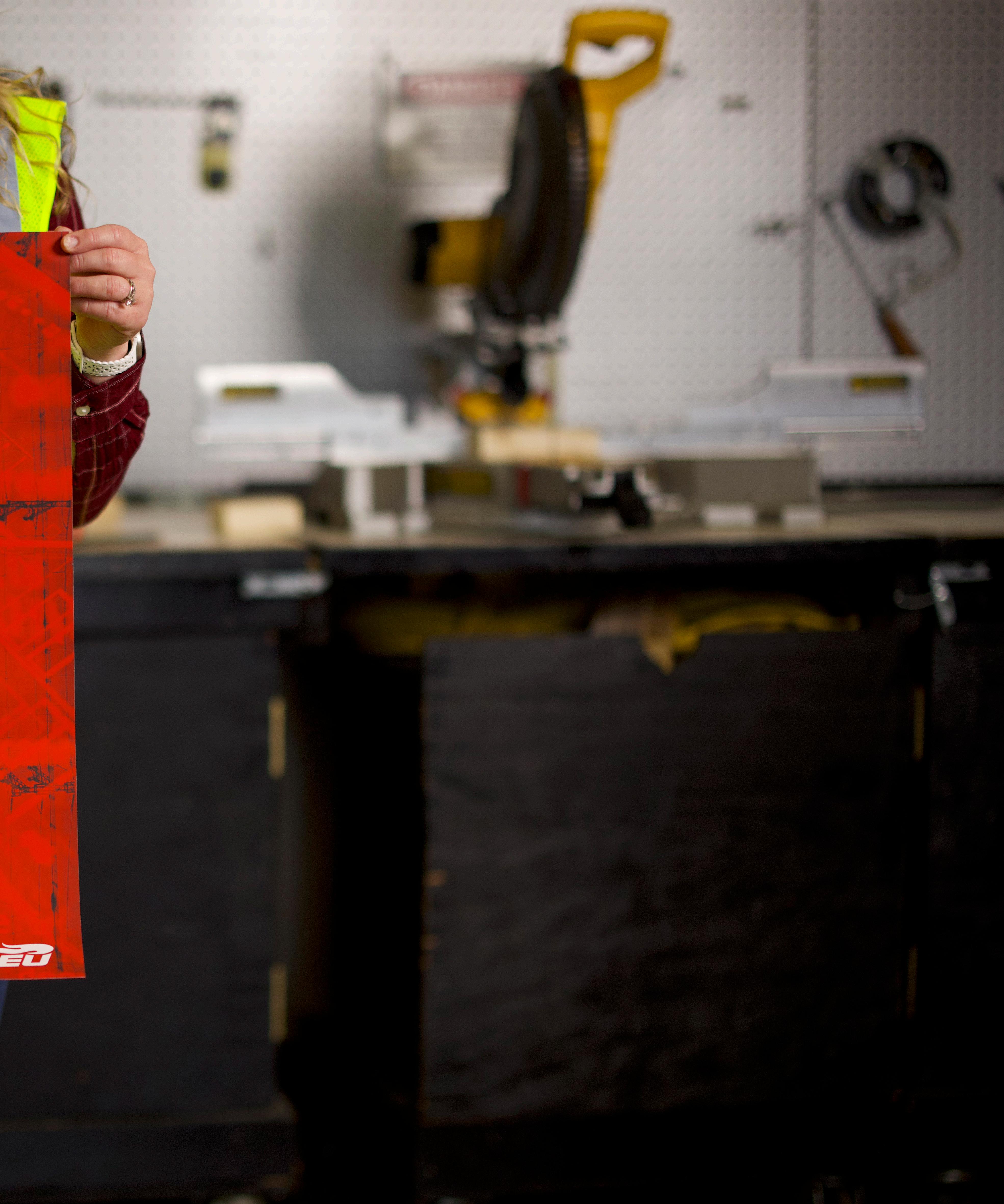
SOUTHEASTERN UNIVERSITY PROVIDES RELEVANT, PERSONALIZED OPTIONS
Southeastern University (SEU) — founded in 1935 — became part of the Lakeland community when it relocated from Atlanta in 1946. At the time, it was called SouthEastern Bible Institute. Today, SEU is consistently ranked in the top 1 percent of the fastest-growing private universities in the nation. SEU has continually adapted to the needs of the current day, bringing innovation to higher education in multiple fields while maintaining its identity as a Christ-centered institution.
In addition to ministry and theology degrees, SEU offers degrees in business, communication and leadership, natural and health sciences, behavioral and social sciences, education, arts and communications, music, aviation, technology, and trades. SEU builds educational journeys and diverse learning experiences to prepare students for their future careers—in Lakeland or on a path outside the local area. Whether students learn on campus, online, or at a partner site, they will discover and be equipped to walk in their “Divine Design”—their unique, God-given purpose.
"There’s a shortage of tradespeople, especially within the construction industry. This need within our community— and throughout the country—has been building for quite a while."
GLENN BARNARD, PROFESSOR AND EXECUTIVE DIRECTOR OF SEU TRADES

SEU President Dr. Kent Ingle and Dr. Meghan Griffin, Provost and Senior Vice President, have worked alongside the school’s leadership team to expand its vision and mission, including increased opportunities for students to gain hands-on experiences in their field before graduation.
“The formative process of the learning experience happens both inside and outside of the classroom,” Griffin said. She was inspired to provide opportunities outside of the classroom based on her own experience in a high school medical class. Although she was intrigued by the subject in the classroom, when she completed the clinical component at a hospital, she realized it wasn’t the right fit for her. “It was because of that realization that I didn’t spend four years of college in a science major, only to discover that working in that field wasn’t what I wanted.”
SEU partners with local, national and international organizations, businesses and churches to give students the chance to find their purpose in real-time, providing experiences that prepare them for their careers.
As part of this commitment to experiential learning, innovation and relevance, SEU has created programs to fill the evolving needs of multiple industries. SEU’s Aviation Pilot Program, based at Lakeland Linder International Airport, is helping address the national pilot shortage by allowing students to complete flying hours and become flight instructors while earning their degree.
The nursing program at SEU (including ADN, BSN, RN to BSN, and MSN degrees) partners with local hospitals for students to complete their clinical rotations, meaning SEU graduates are filling the growing need for nurses.
Students who choose to earn one of the new certifications from SEU Tech —in Software Development, Cybersecurity or Data Science—use what they learn to solve real-world problems.
Through the new SEU Trades program, students combine academic learning with inperson work in local trades businesses.
SEU Trades students can earn degrees in electrical, HVAC, plumbing, project management, or construction technology.
“We’ll have labs and lectures from professionals in these fields and students can also take on apprenticeships,” Barnard said.
Through these experiential programs, students will be equipped to fill industry needs.
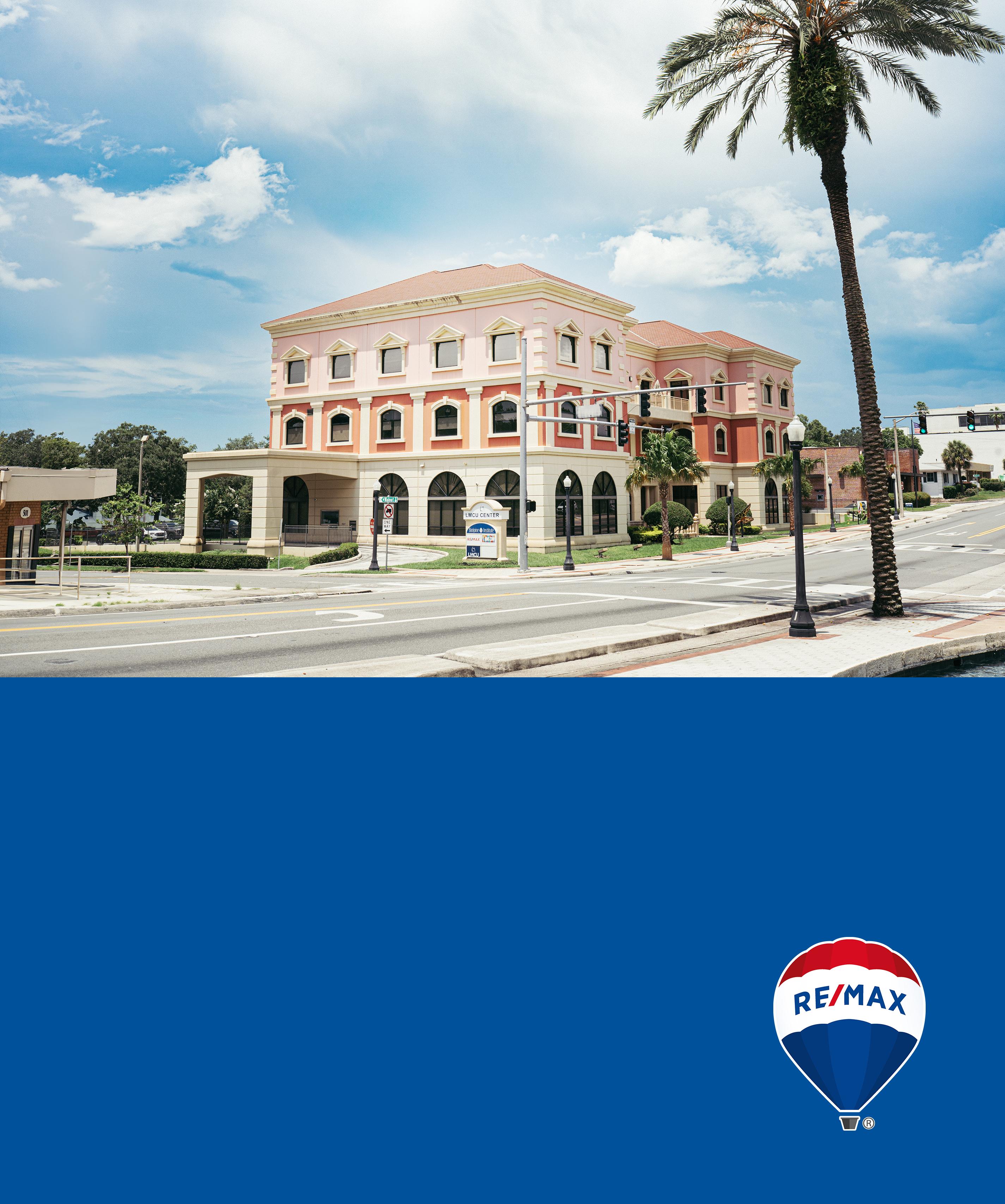



recognize that more and more students who are entering college for the first time aren’t sure of their major or career path,” Griffin explained. “That is why SEU’s new Divine Design Core gives students opportunities to explore their interests without losing time in their academic journey.”
In fact, SEU recently revamped all undergraduate programs to provide students with the space to add additional electives, experiential learning, minors or double majors.
SEU is also innovating higher education by recognizing that effective learning isn’t one-size-fits-all.
“Whether it’s your first time in college or you’re going back after any length of time, SEU has a program for you,” Griffin said. "We believe that when students are co-creators of their degree journey, they are set up for a higher level of success."
More than 115 customizable degree programs are available at the associate, bachelor's, master's, and doctoral levels. Additional learning options include dual enrollment (both traditional and via Classical Conversations), academic certificates, internships and study abroad." Students can learn on SEU’s Lakeland campus or earn a degree fully online or at more than 250 partner sites nationwide.
As SEU continues to take intentional steps to bring students an education that focuses on their Divine Design, students can create a learning experience that is as unique as they are.
“Students at all stages deserve the opportunity to discover their calling,” Griffin said. “And at SEU, we are committed to being with them every step of the way.”


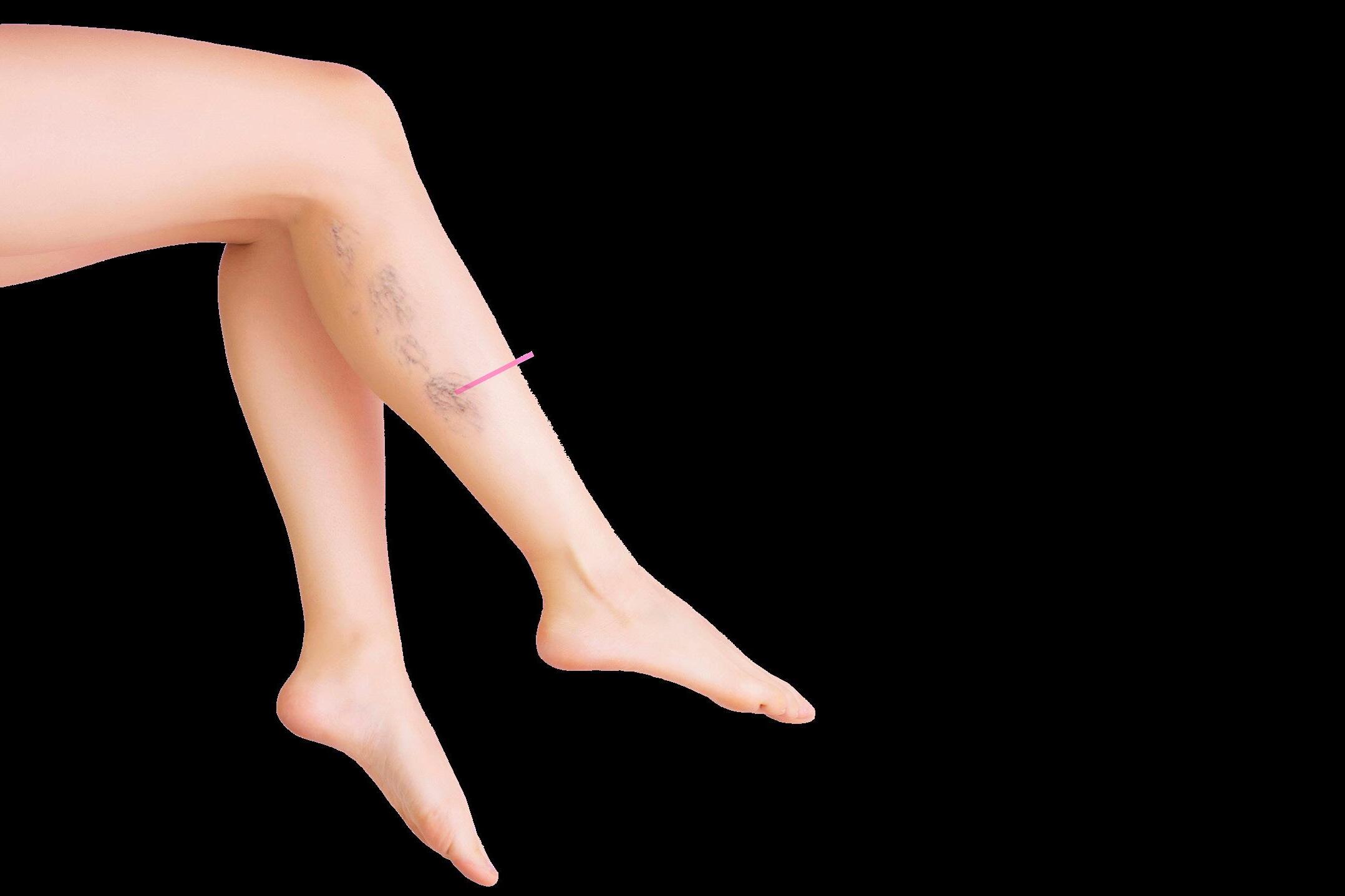
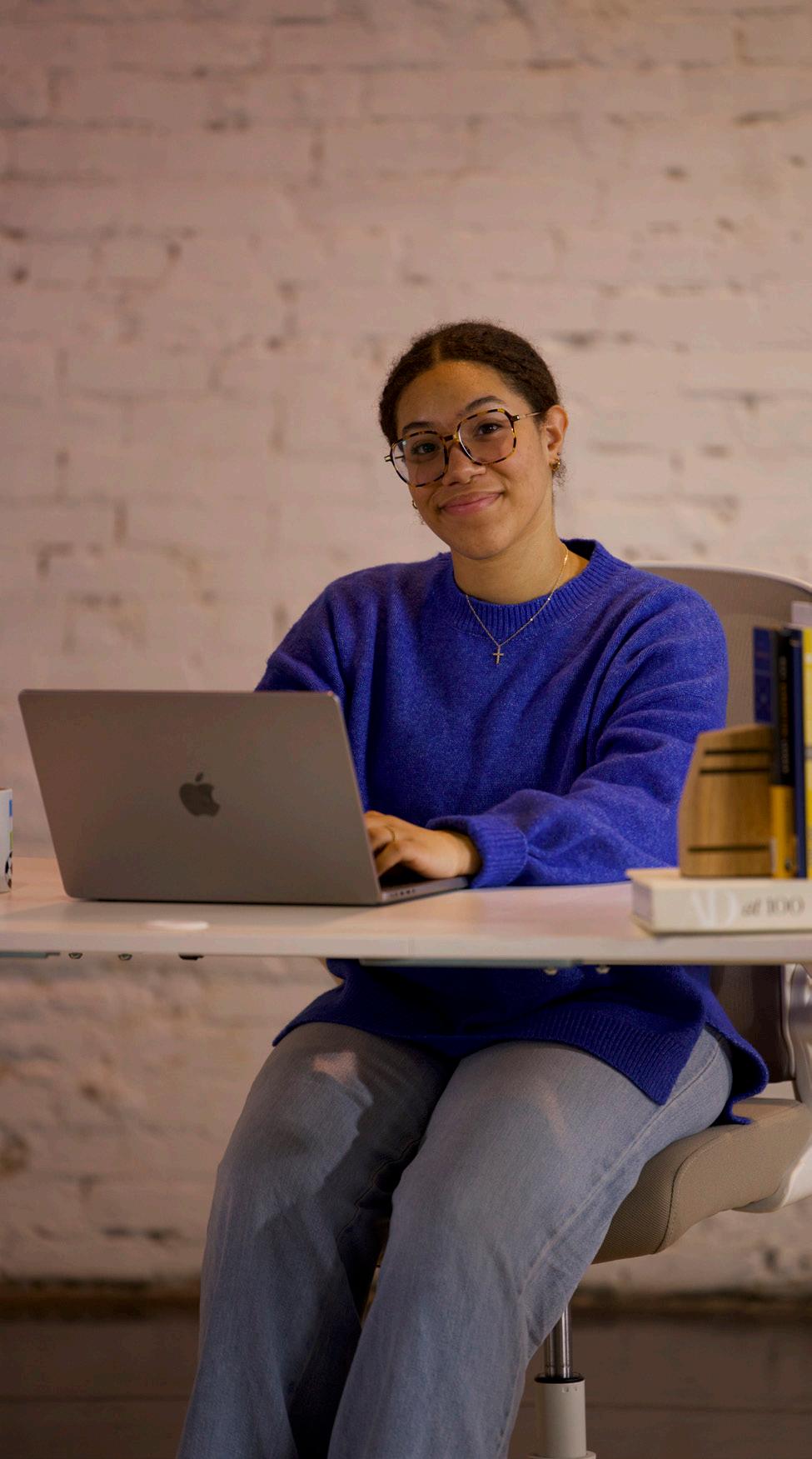



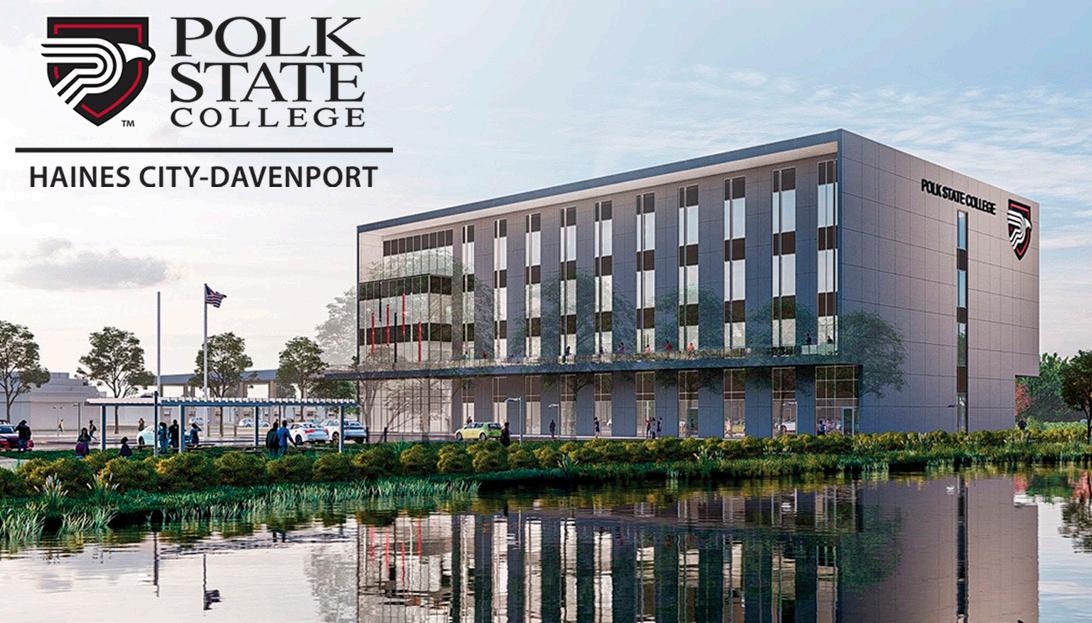
WRITTEN BY RJ WALTERS
The much anticipated Haines City-Davenport Campus of Polk State College is closer to coming to fruition, with Gov. DeSantis signing a bill earlier this year that provides a significant boost to the $51 million facility.
The college celebrated an $8.1 million allocation in the 2024-25 state budget for the development of the 75,000-square foot facility that will include Central Florida’s first public higher education interdisciplinary simulation hospital. In addition to a focus on health sciences, the campus will also include hospitality and tourism management, supply chain and logistics, teacher education, and courses for the Associate in Arts degree.
“Polk State College is incredibly thankful to Governor DeSantis for his support of quality higher education and workforce development, which is illustrated by the inclusion of this funding for our Haines City-Davenport Campus which will respond directly to workforce education needs in the most rapidly growing region of Polk County,” President Angela Garcia Falconetti said in a press release from the college.
Within a 10-mile radius of the Haines City Campus site, there are more than 80,000 residents whose highest educational attainment is a high school diploma or some college but no degree.
Polk State College administrators are no longer just investigating the possibility of a CSI program, they are actively implementing it.
The college recently launched the Crime Scene Investigations concentration within its Criminal Justice degree program. The curriculum is developed and taught by crime scene practitioners, and the program can be completed in full online.
“Nationwide, there is a shortage of employees wanting or willing to work in the criminal justice field,” said Sergeant Chris Shea, Director of Polk State College’s Criminal Justice Program, in the college’s “Report to Community” publication.
• 90% of Polk State College students have Polk County zip codes
• 70% of Polk State College graduates stay in Polk County after graduation
• Last school year, enrollment was at more than 13,000 students
• Polk State College ranks #1 or #2 in all of Florida for percent of Associate in Science graduates, Associate in Arts graduates and percent of baccalaureate degree gradates who are employed or continuing their education
After 20 years under the leadership of Dr. Anne Kerr, Florida Southern College has a new voice in the president’s seat, Dr. Jeremy P. Martin.
The successor of FSC’s first female president comes from William & Mary, where he served as the Vice President for Strategy and Innovation. He was instrumental in launching several key initiatives that improved student retention and academic performance, including aligning the university’s enrollment, marketing, and communications strategies, and advancing the institution's strategic goals.
"With a background in academic administration and a proven track record of enhancing the student experience and institutional growth, Dr. Martin is uniquely qualified to lead our college into a new era of excellence," said Robert Fryer, chairman of FSC’s Board of Trustees, in a press release.. "We are excited to welcome Dr. Martin and his family to FSC and look forward to working with him as he guides us forward."
Dr. Martin, 44, worked at William & Mary for more than 15 years, holding key positions, including Assistant to the President and Provost, Associate Provost, and Chief of Staff. Alongside the provost/chief academic officer, Dr. Martin cochaired the strategic planning process, resulting in the university’s Vision 2026 strategic plan. He also served as Interim Director of Athletics from 20202021, providing stability and leading significant initiatives, including the $57.4 million All In fundraising campaign for athletics.
The 6-foot-5 former college basketball player is excited to take the reins of an award-winning institution in one of the country’s fastest growing cities.
“My wife and I are delighted to return to Lakeland, where I have visited family over the years. My grandfather taught me how to play golf at Cleveland Heights, though I haven’t improved much since his early lessons," said Dr. Martin in a press release. "Tia and I have already felt the warm embrace of the College and look forward to our family becoming part of the Lakeland community."
• Enrollment at FSC is at more than 3,300 students, and includes students from nearly every state and 50 countries
• 400+ students travel abroad each year through the Junior Journey program
• FSC Moccasins athletic teams have won a total of 30 NCAA Division II National Championships
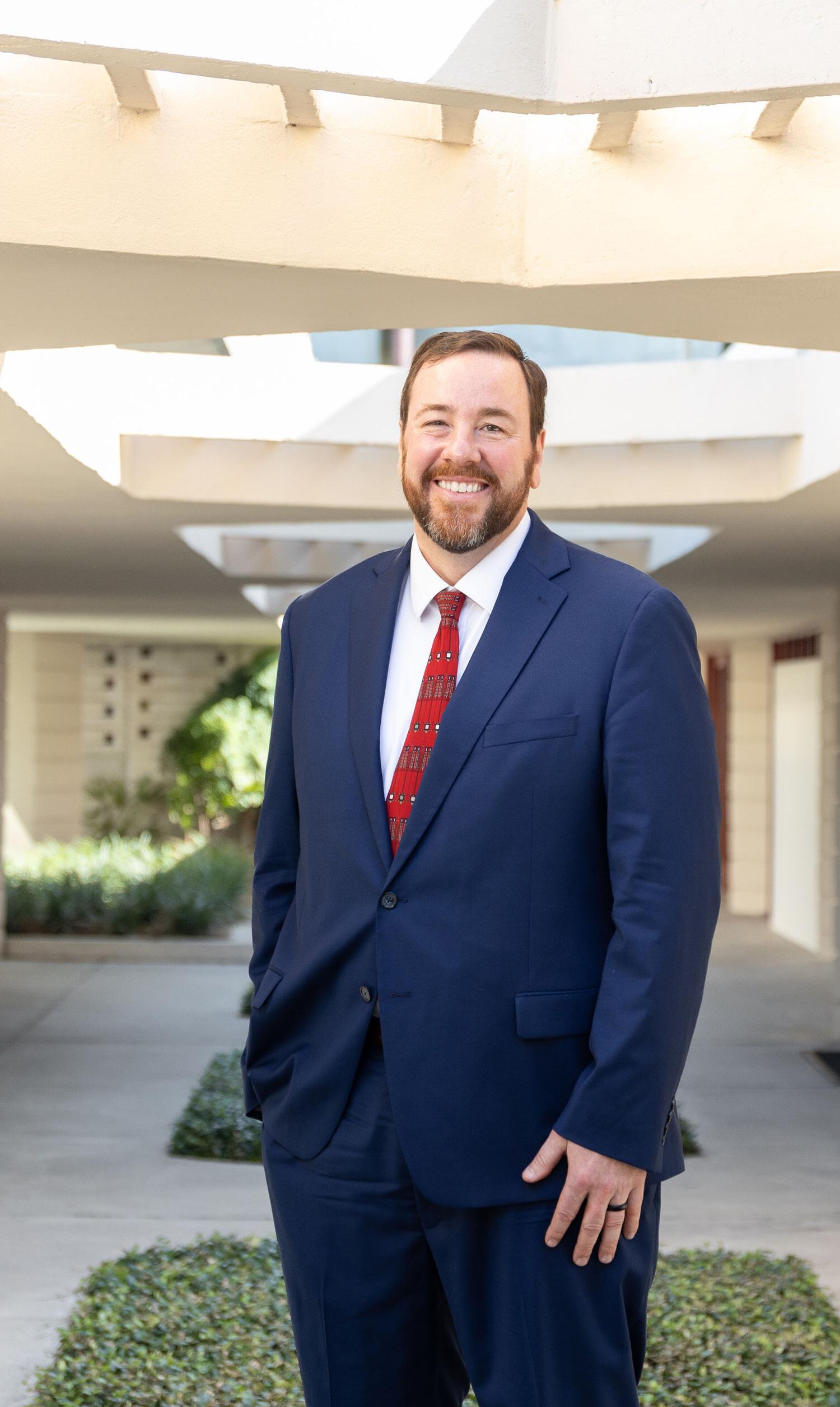

"My grandfather taught me how to play golf at Cleveland Heights, though I haven't improved much since his early lessons."
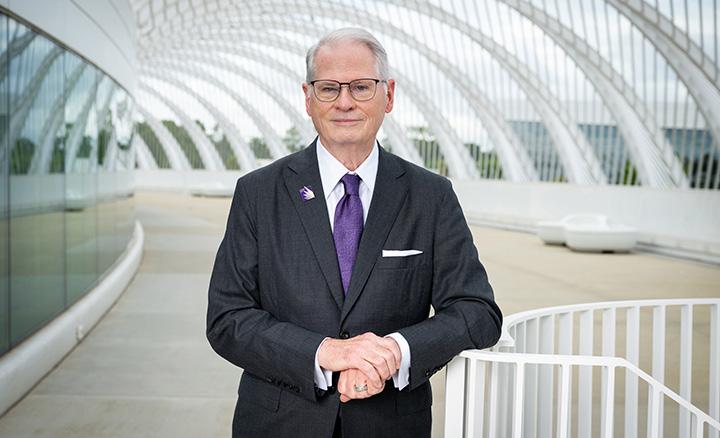
When the only president in Florida Polytechnic University’s history, Dr. Randy Avent, stepped down following more than 10 years at the helm, the school went in a different direction to build on the distinguished legacy he leaves behind.
Following more than seven years as president of Northwest Florida State College, located in Niceville, Dr. Devin Stephenson was voted on to become president of the 1,600-plus STEM school by a 7-6 vote of the Florida Poly Board of Trustees in April.
Stephenson, who had more than 15 years of executive administration experience at community colleges prior to serving at Northwest Florida State College, currently serves as the state’s representative on the Executive Council of the Southern Regional Education Board’s Executive Council.
His experience as a leader and as a successful fundraiser helped vault him over the competition to earn his new role.
“His exceptional qualifications, unwavering dedication to education, and visionary leadership make him the perfect fit for our institution,” said Cliff Otto, Chair of the Board of Trustees in April via a press release. “I’m confident that under Stephenson’s guidance, Florida Poly will continue to thrive, empowering students in STEM disciplines and shaping a promising future for generations to come.”
Dr. Stephenson said in a recent article on the school’s website that he’s ready to put in the work and lead his staff toward raising enrollment on the Lakeland campus to 3,000, and possibly even 5,000 in the future.
“Through my entire career, I’ve been known as a builder,” he said. “Florida Poly doesn’t need a fixer. I’m coming here to help the University grow and add depth to the institution as far as fundraising and building friends, and it requires time and someone who has experience in doing so.”
Stephenson said he will work with the academic team and Board of Trustees to examine current state performance-based funding metrics for the University and consider ways to improve Florida Poly's statistics.
“I’m going to operate with integrity, respect all people, and be very transparent,” he said on the school’s website. “We’re going to make an even bigger name for this University, I can promise you.”
His impact is already being realized. Stephenson’s staff recently added to its international partnership portfolio by securing an agreement with the Fulbright Commission Brazil to create opportunities for academic collaboration and for distinguished Brazilian researchers and scholars to conduct research at Florida Poly. This agreement builds on Fulbright partnerships the school has with Portugal, Finland, Spain, Italy, Canada, Australia, Luxembourg and Belgium.
The Fulbright Program was founded by the U.S. Department of State in 1946, and it works with more than 160 nations around the globe to increase educational and cultural exchanges to study, learn, and pursue academic and professional projects.
Did you know?
• Florida Poly was named the #2 Regional College in the South by U.S News & World Report in 2024
• The school is entering its 11th academic year with enrollment that is now more than 1,600 students
• Florida Poly is home to the Advanced Mobility Institute, which focuses on the development of autonomous vehicles, and the Florida Industrial and Phosphate Research Institute, which works to solve phosphate related-issues and advance technology for industrial purposes
• Through its Capstone Program students are provided the opportunity to work with real-world, open-ended, interdisciplinary challenges proposed by industrial and research project sponsors




WRITTEN BY RJ WALTERS
PHOTOS BY POLK COUNTY PUBLIC SCHOOLS
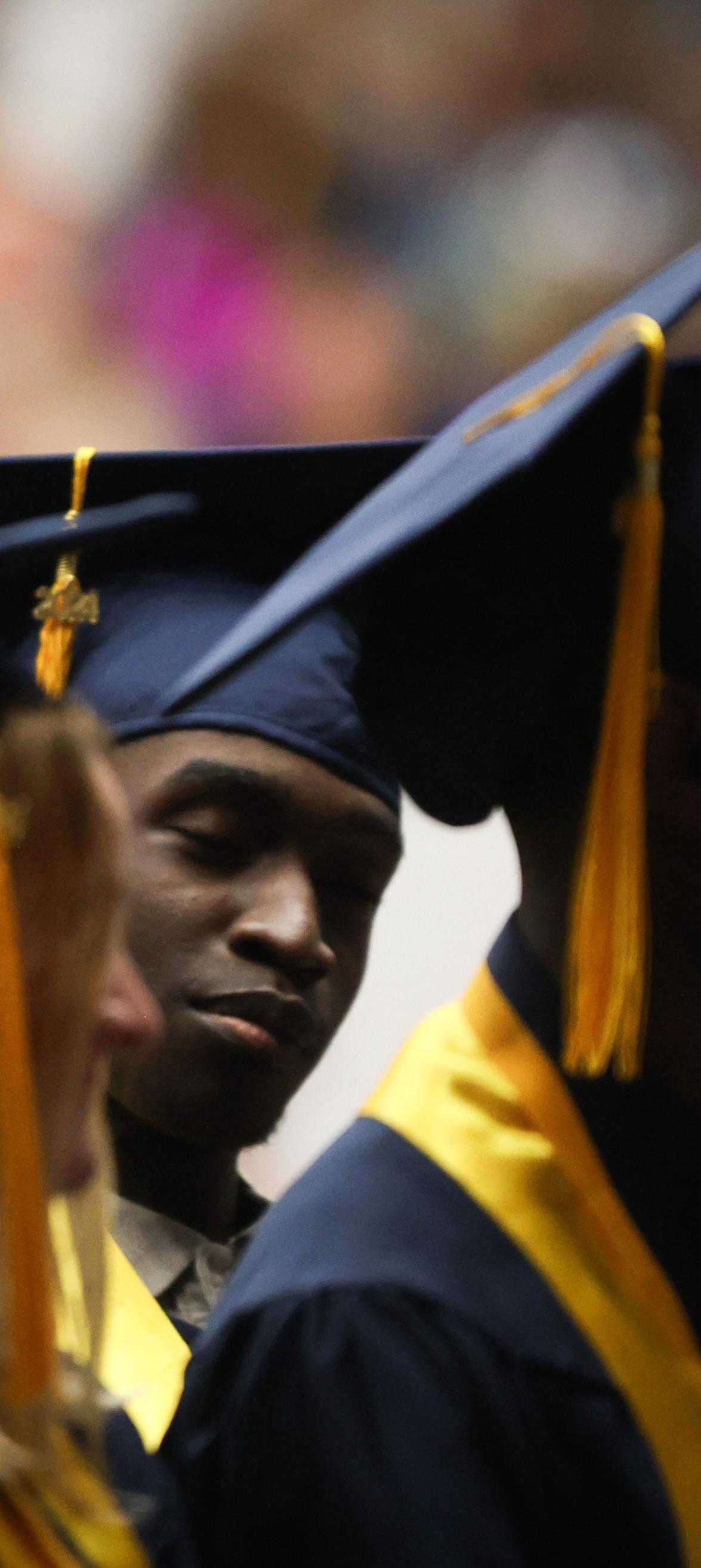
the late 1860s kids piled into one-room schoolhouses when strawberry harvesting season was over.
Today, kids enjoy sprawling modern facilities with technological innovations and decades of research and data integrated into the educational experience, and educators are strategically focused on how to help a student achieve their dreams— which could include one day being the CEO of a global produce company whose profit margins rely heavily on the strawberry harvesting season.
The Polk County School District formed in 1869 when Polk County was home to just over 3,000 residents, and now with an exploding population that is more than 250 times that the challenges and purposes aren’t as starkly different as you would imagine.
At the core, our public schools continue to wrestle with the best way to prepare young men and women to work when they come of age, while allowing them a safe space to develop socially, emotionally, physically and intellectually.
With more than 120 schools and more than 14,000 employees, it’s all hands and hearts on deck as staff implement new technologies, learn new instructional methods and are bombarded with more numbers and spreadsheets than ever before.
In 2023-24, the district fell just one percentage point short of earning a ‘B’ grade at the state level for the first time since 2019, causing Superintendent Fred Heid to celebrate the progress, but reiterate the hard work that is just beginning to achieve the outcomes he and his team know are possible.
The cadence of his speech quickens when he talks about wins—which include more students graduating with associate level college degrees and industry certifications, improved teacher retention, more impactful collaboration with local businesses and higher state test scores in every subject district wide. And his words become more calculated and flow a little slower when he hones in on areas of focus that the district simply has to create better outcomes in. To Heid, who is entering his fourth year as leader of one of the 30 largest school districts in America, two things he insists on getting and staying better at that encompass the district’s overarching goals are: high school graduation rates and acceleration points.


NEARLY 8,000 PCPS SENIORS CROSSED THE STAGE IN 2024 WITH DIPLOMAS OR CERTIFICATES OF COMPLETION

PCPS IS HOME TO MORE THAN 30 HIGH SCHOOLS, TECHNICAL COLLEGES AND ACADEMYS


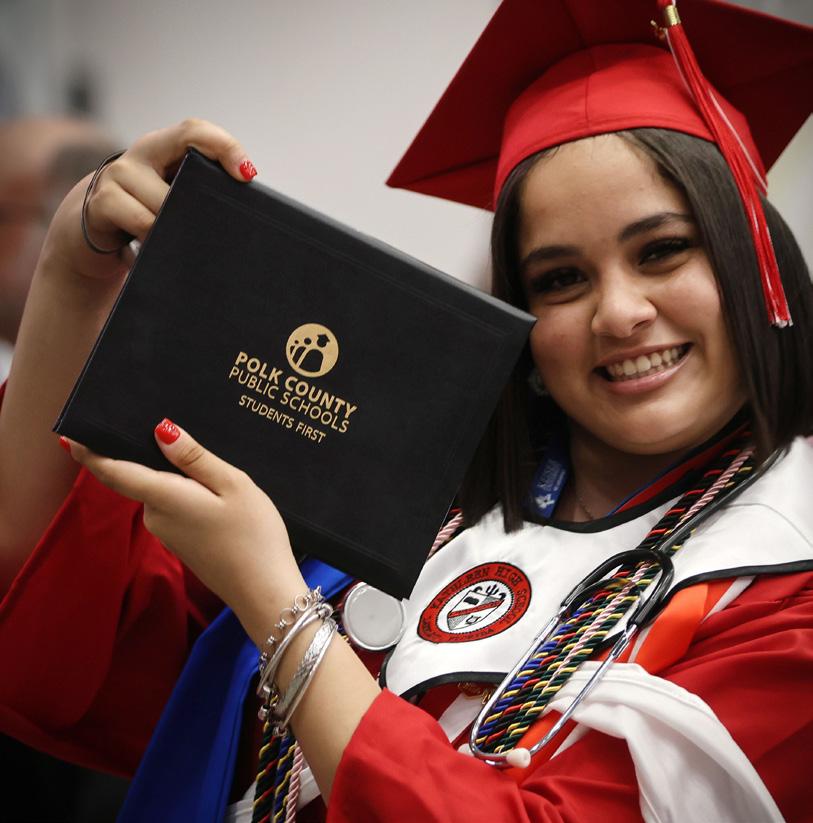











The district’s high school graduation rate has been 78 percent the past two years, and data from last school year has not been released by the state, in part because of summer graduations. Heid said he is confident the number will finally be above 80 percent, but that’s just a launch point for where he expects to go with unified efforts and new initiatives in place that fill identified gaps based on data and student experiences. The statewide graduation rate was 88 percent during the 2022-23 school year.
One of the ways the district is making inroads is through its plethora of career and college readiness offerings in high schools—and even middle schools—progress that is indicated in the acceleration points schools earn, which continues to improve each school year.
The state rewards acceleration points for things such as industry certifications, international baccalaureate performance, advanced placement course performance, etc. Heid said the better the district does at providing the resources and roadmaps in middle school, the better the district’s high school test scores—and ultimately graduation rates— should become.
SUPERINTENDENT FRED HEID
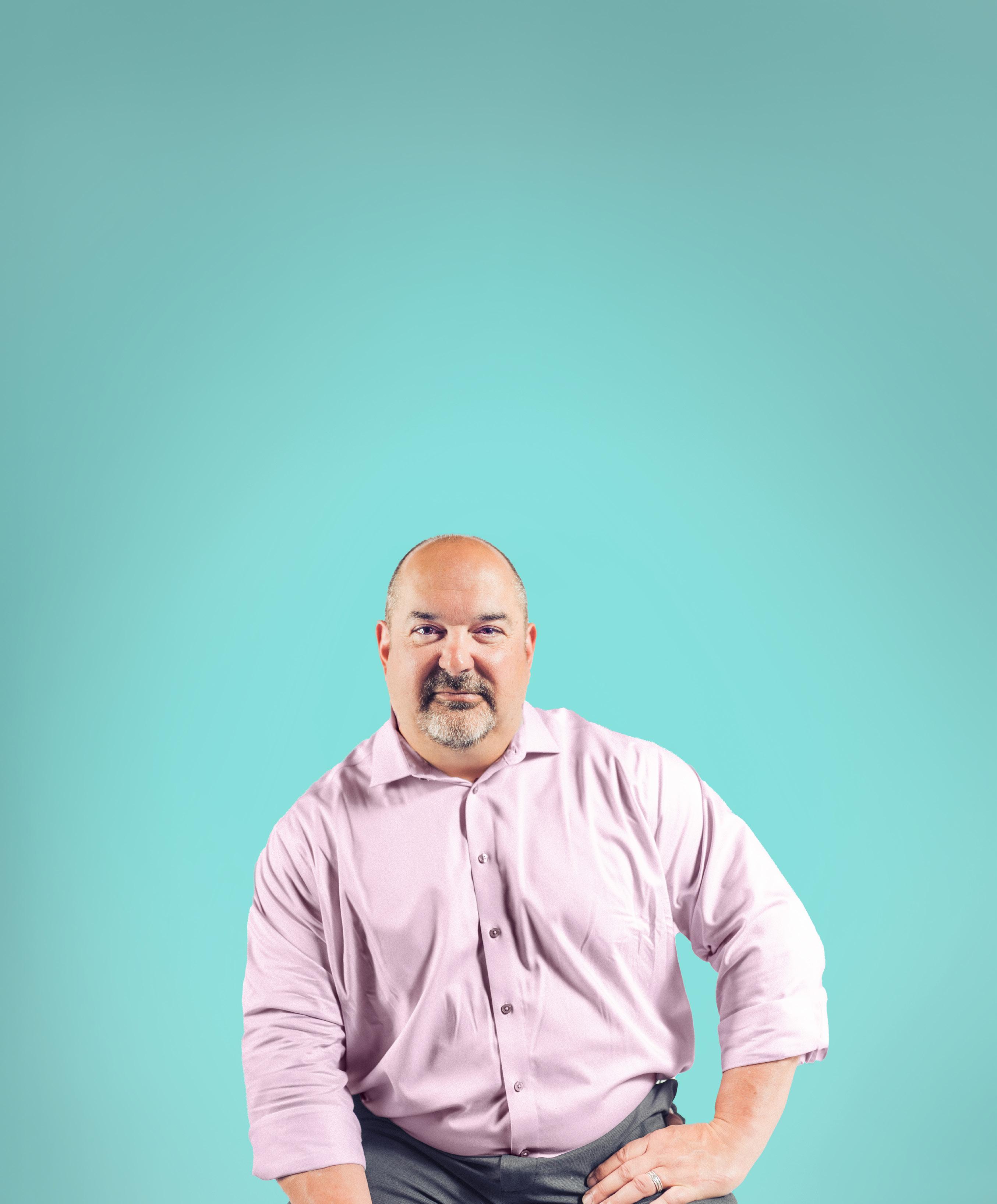
“We’re eliminating barriers, so if a child is ready for algebra in seventh grade, why wait? Let’s give them the opportunity and then they can earn high school credit and take geometry as an eighth grader,” Heid said.
Numbers and data tell a story of a district striving to compete at a higher level than ever before. Sometimes the data lags behind the effort or new challenges arise, but Heid believes he has the teachers and staff needed to accomplish this grand mission.
“I think our [academic progress] is a testament to our amazing teachers, our administrators and our support staff., I make a habit of telling everybody in our organization that every single job is equally important—there is no job that's more important than another,” he says. “A student's academic day starts with a bus driver, it starts with food and nutrition services with breakfast, and those relationships are increasingly important. Recently, one of our community partners stood up and acknowledged the fact that if it hadn't been for custodians and the food service workers, her son would not have felt as connected to school. It's the relationships that matter.”
“WE’RE ELIMINATING BARRIERS, SO IF A CHILD IS READY FOR ALGEBRA IN SEVENTH GRADE, WHY WAIT?"



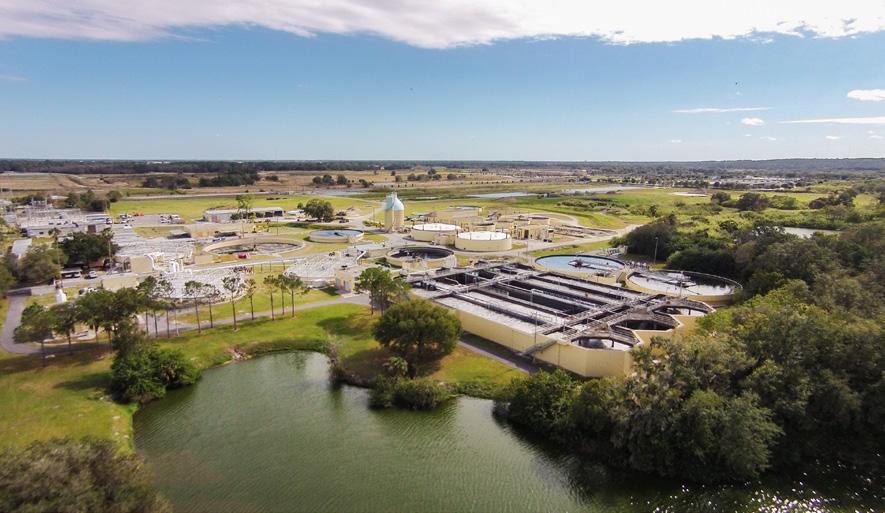








"IF
ANYBODY LOOKS AT OUR TRAJECTORY AND PERFORMANCE THAT WE'VE HAD OVER THE LAST THREE YEARS, YEAH I'M PROUD OF THE WORK. ARE WE THERE YET? NO."




AMONG THE
LARGEST DISTRICTS IN THE U.S.
Polk County is one of the lowest funded districts in the state, ranked 61ST OUT OF 67 districts.
Polk County is experiencing a population boom and is one of the fastest-growing counties in the nation.
Roughly 80 people a day are moving to Polk County.
1.6%ASIAN OGRAPHICS
31.5%WHITE
2.7%MULTIRACIAL
42.6%HISPANIC
21.2%BLACKINDIANAMERICAN/ 0.4% PACIFICISLANDER
10 schools offering International Baccalaureate
Nearly 30 certified or model career academies
8 elementary, middle and high schools offering Cambridge programs

WRITTEN BY RJ WALTERS
uperintendent Fred Heid is not one to shrink from the challenges of shepherding one of the largest school districts in America; instead he is known for openly acknowledging them and working with leadership to find solutions. One of those evergreen challenges is helping families and students navigate the journey to postsecondary education and post high school career options.
“Every time I speak publicly, I share this one statement: we have got to figure out how to make students and parents be partners in their education and not just passengers in their education,” he says.
That’s easier said than done, especially when the counselor to student ratio in the district is around 1:550—an improvement from several years ago, but still inadequate to meet the exhaustive demands.
Beginning this school year an innovative new technology platform is being implemented district wide with high hopes of being the missing link that proactively connects students, care givers, counselors and the local business community to each other for the purpose of providing streamlined guidance and building meaningful relationships that can help communities thrive in new ways.
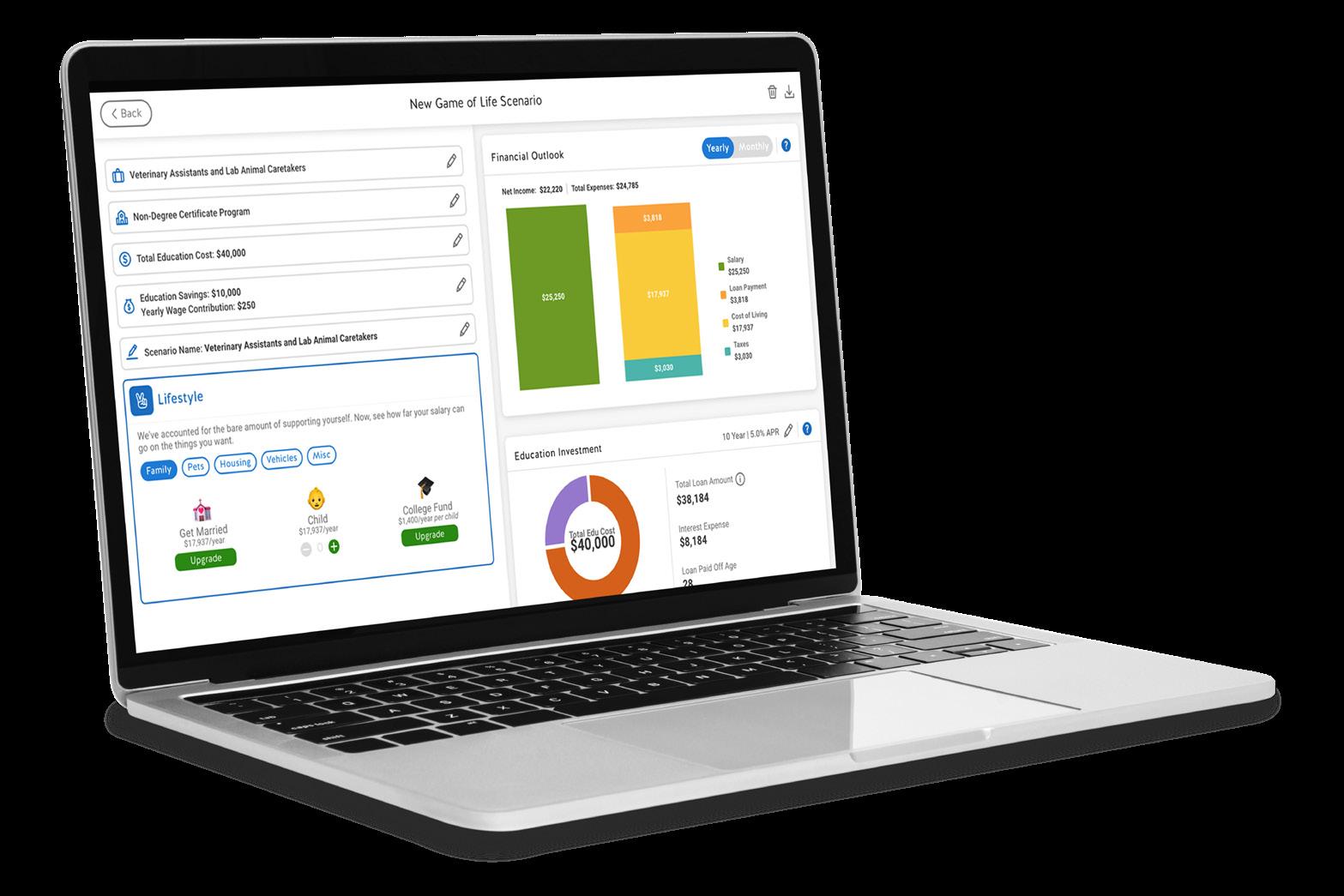
SchooLinks is intricate in the sense it takes into account federal, state and local education requirements and is adaptable as the districts the company serves, but it is also as simple as a lot of the application based technology students and families use on phones, tablets and computers every day.
Students fill out an interest inventory, and the system begins showing them career options to consider. That flows into course and program offerings at their school and other schools they may attend in the future, and it helps build out a dynamic personalized dashboard that includes everything from upcoming career fairs to local businesses students could potentially job shadow or intern with in the future to universal processes related to the education process.


It is a tool that can be used by K-12 students, but is most often used by middle school and high school students at the level that matches the career and college readiness options of the district.
SchooLinks CEO Kate Fang, who founded the company nearly a decade ago, said the interface of SchooLinks is built to counteract the fact that many students feel like giving up on clarifying and chasing after post-high school dreams because they are intimidated by the process and/or they do not have adults in their lives who are familiar with the process to help them navigate it.
“You feel like it’s simple to use and there’s not much, but it’s so robust because it’s only showing students what they need to know at that specific moment in time when they need it,” Fang said recently.
For example, the platform will push messages to high schoolers and their counselors regarding asking teachers for reference letters or about next steps for financial aid applications, etc. well in advance of when the items have to be done to keep students and families on track.
Heid acknowledges the challenges school counselors face today are many and increasingly complex—especially with the cultural emphasis on social and emotional behaviors—and he believes this is a tool that will accelerate and increase their ability to do more meaningful academic counseling using technological advances.
“What SchooLinks allows us to do is it'll automate messaging to my school counselors to say, ‘Hey, Fred's off track. Here's his course schedule and this is the wrong course.’ It will keep sending a message to that counselor to remind them that they need to make that change,” Heid says.
Of course Superintendent Heid is referring to himself as a “student” but one of the greatest strengths of SchooLinks, according to Fang, is that the SchooLinks staff are essentially active “students” of each district they contract with—an ever present team of technology and systems professionals ready to run directly alongside district leaders.
“We don't only care about the implementation piece, we care about the outcome piece,” she says. “We have adopted this mindset that is just continuous development, continuous deployment. We’re not waiting for a year to deploy a change, we’re deploying next week. We want to make sure that we are always helping our school districts solve the most important problems.”
SchooLinks consists of roughly 150 employees, and the Austin, Tex. based company has implemented the platform with some of the country’s largest districts including Chicago Public Schools, as well as created a high-level framework for the U.S. Department of Defense.
One of the additional reasons Heid, as well as local leaders like Melody Rider, President of Lakeland Leads, are so enthusiastic about SchooLinks is because of how it will drastically improve the long-term relationship between schools and local businesses and corporations.





"The SchooLinks Industry Partner Network is purpose-built to let employers connect with early career talent in high school by providing a structured engagement process with K-12 institutions,"Rider said. "SchooLinks offers a variety of workflows for companies to meet their branding and talent pipeline needs."
Businesses sign up for accounts on the platform, where they have direct communication with counselors and can share information about internships and mentorships, career fairs, events, etc.
Parents and students of many high schoolers and middle schoolers can expect to start receiving communications about signing up for SchooLinks during the first semester of the school year, but the approach will be methodical and multi-level meaning students will receive invitations at different times.
The contract for SchooLinks was approved by the School Board in August, and includes a three-year agreement that can be renewed annually.
“I think it's a game changer for our students and our families,” Heid says. “ I think the most important part of the whole thing is it starts to empower our students to really be drivers and decision makers in their own educational experience.”

"THE SCHOOLINKS PARTNER NETWORK IS PURPOSEFUL TO LET EMPLOYERS CONNECT WITH EARLY CAREER TALENT IN HIGH SCHOOL BY PROVIDING A STRUCTURED ENGAGEMENT PROCESS WITH K-12 INSTITUTIONS."
- LAKELAND LEADS PRESIDENT MELODY RIDER
WRITTEN
BY
RJ WALTERS ILLUSTRATIONS
BY
JON SIERRA
Polk RISE! Program Prioritizing Early College Preparation Through Relationships and Roadmaps
a gathering at the beginning of the 2023-24 school year, the mother of a 9th-grade student discreetly walked up to Katie Marsh and quietly posed a question to the longtime counselor who is a college navigator for the district’s newly implemented Polk RISE! Program.
“My daughter really wants to be a writer… but I’m afraid she's never gonna be able to actually earn any money. Do you have any ideas? What kinds of jobs are out there other
than just writing the great American novel?”
Marsh smiled and responded: “Well, I think I’ve got a mentor for you…”
She scheduled a meetup at a local coffee shop where Marsh’s daughter—a business writer who runs a small business—shared with the high school freshman and her mom all the different ways to make a career out of writing in the modern marketplace.
“That student left that meeting saying, ‘Oh my gosh, there are so many more ways other than just writing the great American novel’—and there’s nothing to say she can’t
write the great American novel—but she also will need to put food on her plate,” Marsh says. “And it helped mom feel very comfortable.”
Marsh’s daughter made the commitment to mentor the aspiring writer for the remainder of her high school career, an example of what the district hopes to see organically happen through this new program.


Polk RISE! is born out of the reality that most parents care deeply about their children’s futures, but they may not know how to best assist them on the journey because it is uncharted territory for them.
“Students who don’t come from families where they had a college attendee may believe it’s unattainable because there’s no one in their household, potentially, advocating for that or who can help them with that,” says Polk County Public Schools Superintendent Fred Heid.
Polk RISE! is designed to specifically assist students who show academic prowess and potential, who have caregivers who have not earned a four-year college degree and who are part of a household that qualifies for free or reduced lunches.
The program began last school year under the leadership of Deputy Superintendent Wayne Green and Anne Everett, Senior Director of Acceleration and Innovation programs, with a cohort of 100 9th graders who met that criteria. This year the program is expanding to 100 students in 6th, 7th and 8th grade cohorts—under the leadership of Stacey Threatt— and staff resources will continue to grow with the program as it eventually becomes a well-defined post high school pathway for 6th through 12th grade students.
Students and caregivers sign “policies and promises” as a declaration of their commitment to stay attentive to and engaged in in-school, after-school and occasional evening meetings that focus on topics like financial assistance for college, appropriate course loads based on post high school goals and application processes for colleges and universities.
Green is well-versed in the barriers prospective firstgeneration college students face, as he has mentored dozens of them toward higher education and career success for more than 20 years.
“As educators we want to educate our kids so they can have choices. If they choose to go to college, we should prepare them to be successful at it, but we all want them to go and not have debt,” he says. “[We want] to prepare them so that they would be competitive for scholarships and additional financial aid. That begins with rigorous coursework and preparing them to be successful in advancement placement courses.”
Threatt, who worked as high school counselor in Orange County for more than two decades prior to making the move to PCPS, said she and Marsh understand the program’s success starts with positive relationships and consistent, attentive communication with all involved.
“I’m excited to start the middle school program because it is laying the groundwork, the foundation that will help students be successful in high school that will help them be successful in college,” she says.
That foundation will include pointing students toward academic competitions, leadership opportunities, mentorships, internships and more.

While the framework for the program is thoughtfully and expertly designed, Marsh is quick to acknowledge that the long-term success of it will require flexibility and continual improvements based on real-time experiences. She mentioned that during the first year of Polk RISE! the attendance at some of the required meetings was less than expected, but she quickly understood that it wasn’t due to a lack of effort or desire to be involved.
“A lot of our students are coming from families with very limited needs. Their parents are working in factories, or they're working the kinds of jobs that they cannot take off work,” she says. “In many of my students' families only one adult drives and the dad has the car and the mom is home with the kids.”
Adjustments to the program from those early lessons include options for some online meetings, as well as more informative material to read prior to meetings, so gatherings can be more productive because people come to them with the same baseline information.
Marsh is empathetic toward students who don’t particularly like school, because at one time that was her. As the youngest child of seven in her family she says her grades “were terrible” for a long time, and it wasn’t until a drama teacher “turned on the switch for me” that she found her footing.
She dove headlong into theater, participating in as many as four or five shows at Theatre Winter Haven each year. That didn’t immediately translate into better grades, but it gave her the ability to identify some of her gifts and to see she was capable of doing challenging things.
“We’ve got to help flip the switch not only for sports, theater and co-curricular things—which are important—but to help kids understand that if they don’t get something, you’re in the right zone to learn it,” she says. “It feels good when you are competent and capable, when you do something well academically, when someone calls out a skill or a gift in you and when you persevere and you accomplish something that was difficult.”
The success of the Polk RISE! Program will be defined by intangibles as well as measurables.
The quantitative impact will be seen years from now in terms of how many students went to college, earned degrees, effectively managed their post-high school debt, etc.
For right now, it’s about setting the tone and building lasting relationships founded on trust
“At the beginning of the [last school] year kids were very hesitant to talk, very hesitant to share, and now they’re reaching out like crazy asking me questions and parents are contacting me asking questions—so I know that we’re making a difference,” Marsh says.

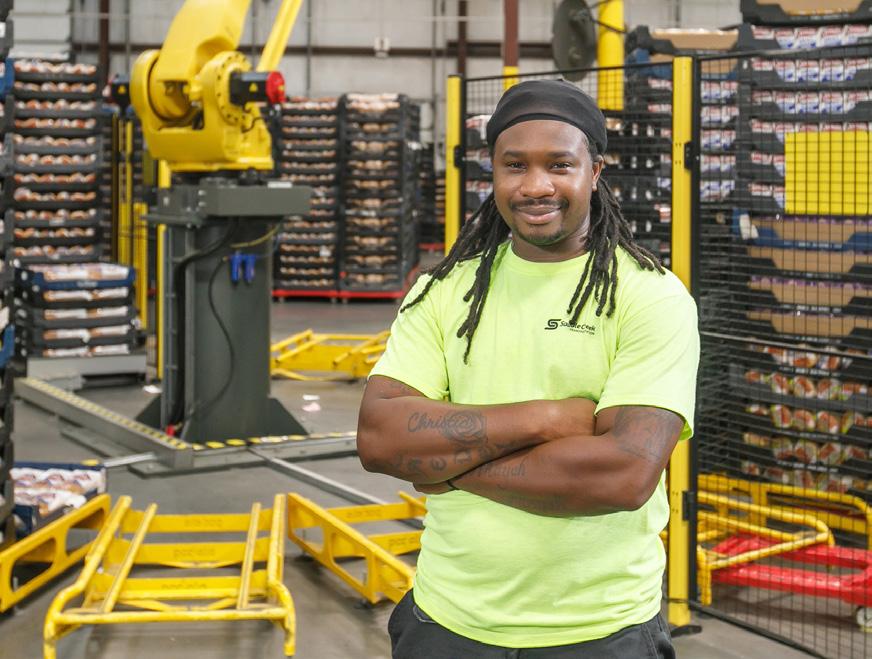
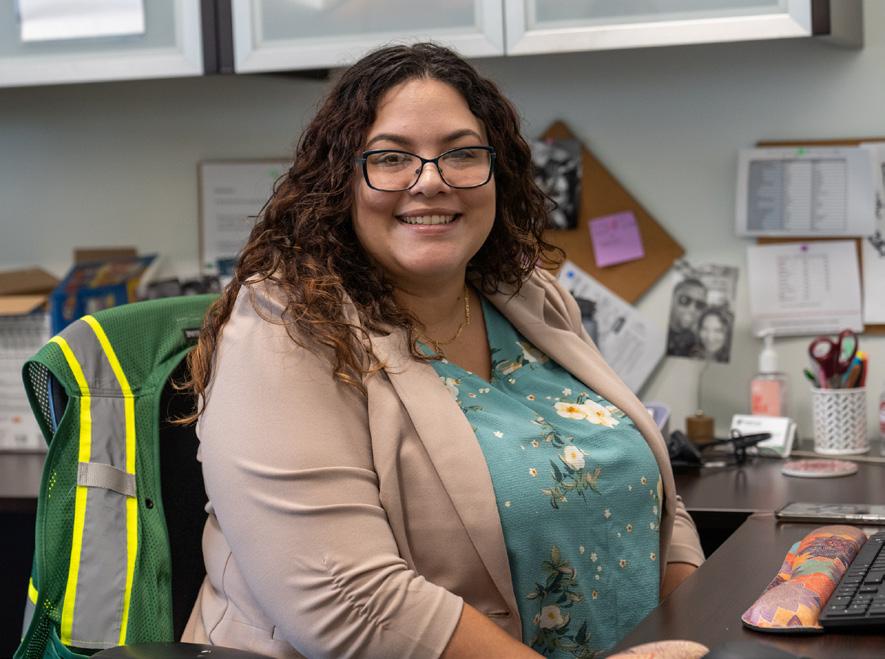
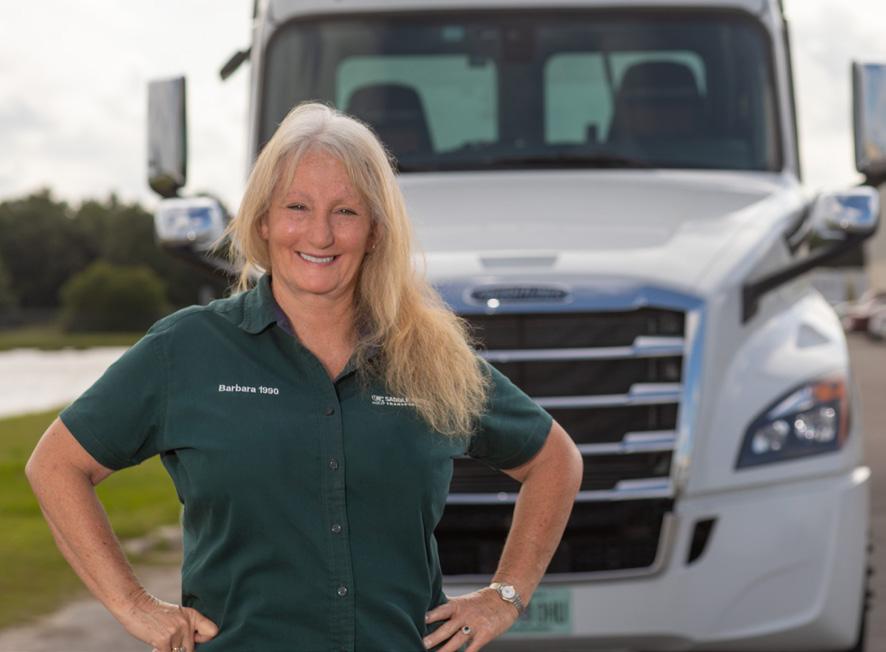
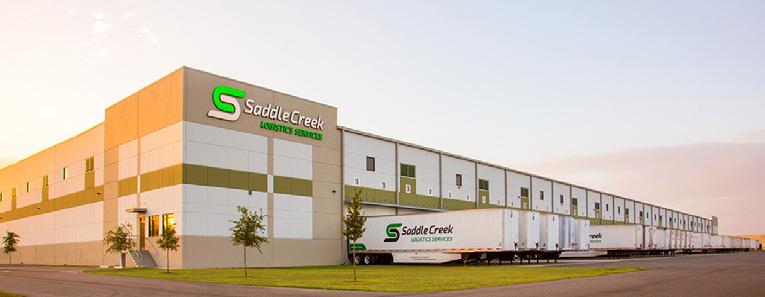

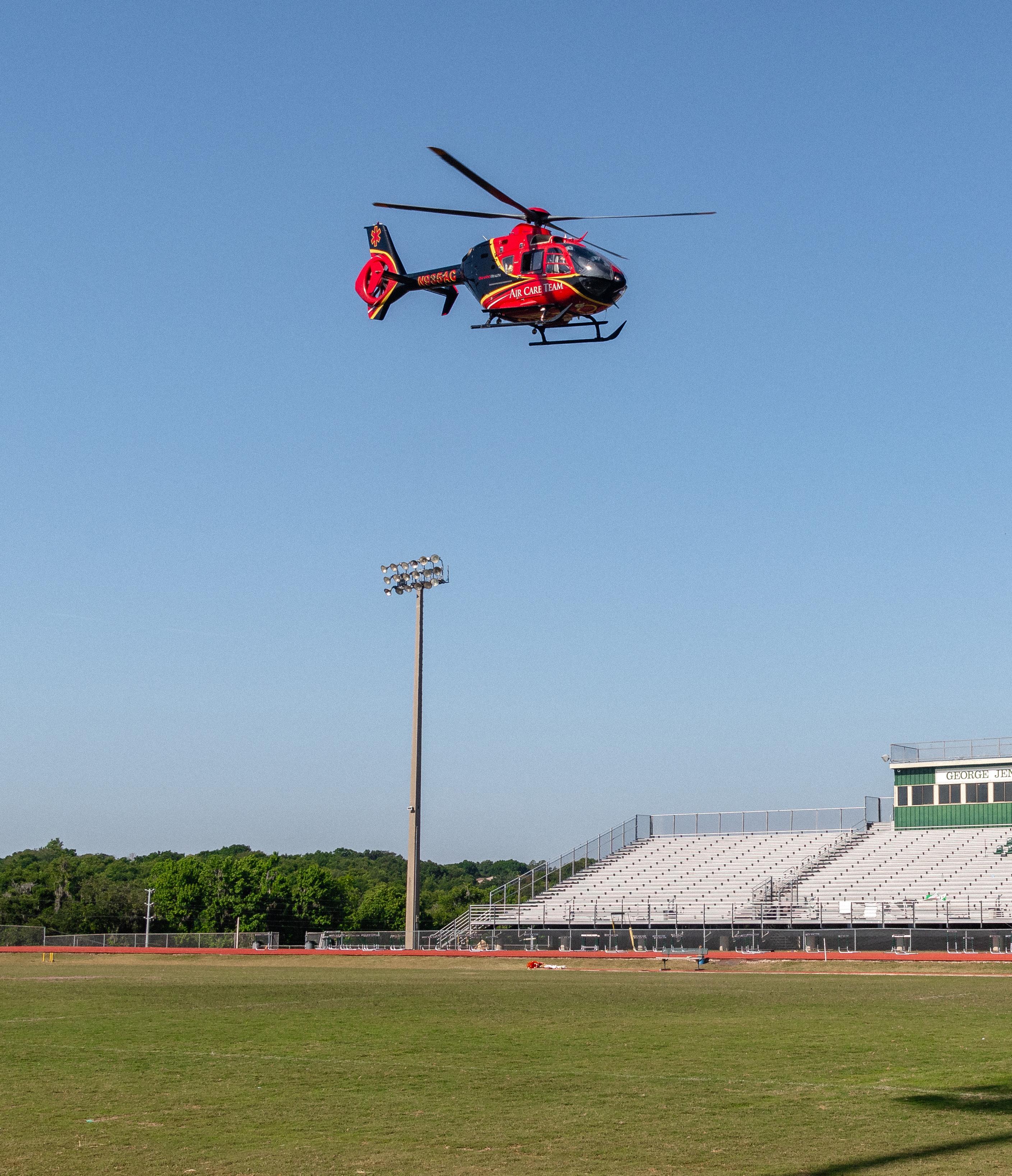
More than 460 students were part of George Jenkins High School's Medical Academy during the 2023-24 school year.

WRITTEN BY RJ WALTERS
the rhythmic “wop wop wop” of the Orlando Health Air Care helicopter grew louder and louder as it descended onto Jerry May Field at George Jenkins High School in front of hundreds of students and faculty this April, it did not signal an unexpected moment of crisis—it was actually a symbol of clarity.
Orlando Health—a private non-profit healthcare organization that is currently constructing a 300-plus bed hospital less than four miles from George Jenkins High School—has made its mission to enhance the school’s long-standing Medical Academy, inspire the next generation of healthcare workers and ideally train and hire many of the students to create a lasting impact in the community.
More than 460 students were part of the Medical Academy during the 2023-24 school year. Orlando Health’s first year as an official partner for the Eagles brought everything from students simulating emergency responses on campuses to conversations with active Polk EMS professionals to mock interviews with Orlando Health HR staff.
As Dawn Willis, a community relations manager for Orlando Health and a longtime Lakelander, puts it: the collaboration has been “magical” from the very start.
Investing in local schools is a high priority for Orlando Health, and the timing was perfect to come to an agreement with GJHS as Polk County Public Schools continues to put a lot of time and resources into growing and improving its college and career readiness options.
“What was even more incredible here in Polk County is we had the academies specifically focused on the medical—or even the other academies that fit into all the areas where we’re going to be recruiting team members—[and] we will need 2,500 to 3,000 new team members when we open the new location,” Willis said.
“The teachers were just so great to work with and helped find those areas that we could bring our clinical teams in to give the students the experience that are going
to build a pipeline for us with the help of Lakeland LEADS and the school’s help.”
Willis said it’s rewarding to see students go from thinking that nurses and physicians make up the majority of healthcare to understanding how it takes people of so many different passions and skill sets to create qualified and capable medical and healthcare teams.
“All of a sudden I think we brought those real life experiences to the classroom where the teachers appreciated that because they're working with all the different classes and have 14,000 things coming on every day on their plate,” Willis said. “It showed students how that interaction happens on a daily basis. All of a sudden everybody was excited; it was happening in real-life, even though it was [in controlled settings.].”
For GJHS Assistant Principal Brad Hiers and the school’s leadership team, it has taken what was already a well-respected program and accelerated it to the next level of excellence, evident by the fact the Medical Academy was nominated for a Lakeland Leads Academy award and GJHS and Orlando Health were nominated for a Lakeland Leads Business Partner of the Year award.
Hiers acknowledged there are a lot of people and businesses who want to help students thrive, but it takes an extraordinary commitment and a true shared passion to create lasting opportunities that help unlock student’s gifts and teach them how to put them into practice. One year into the collaboration with Orlando Health, he is clearly impressed.
“When we’re talking about business partner relationships ... .what we need the most, and the hardest thing to get honestly, is just time, and have someone we can reach out to,” Hiers said. “My hope for the partnership—which really played out over the last year—is that we can reach out and say, ‘This is where we have an identified area of need or lack of ability to provide relevant experiences to kids. Can you help us out there?’”
Sometimes that help included Orlando Health donating supplies to the school, and sometimes that help looked like Willis and her colleagues painting a picture of

As Florida Southern’s president, it is my great privilege to serve as the College’s chief success facilitator and its unwavering advocate in the community, state, nation, and world.


We know you deserve convenient access to the highest quality healthcare. That’s why Orlando Health is expanding into your community with leading emergency services and diagnostics, as well as expert primary and specialty care providers. We invite you to follow along as we announce plans for new locations and services in your area — all bringing you closer to a trusted network of care. Giving you more reasons to choose well. OrlandoHealth.com/Polk

how current GJHS students could soon be on a payroll for Orlando Health or other healthcare providers.
She said when the new Highlands hospital opens—which is slated currently to be in about 1.5 years—the company will be able to hire 16-year-olds for $15 an hour in some positions, not just related to the Medical Academy, but also potentially related to the GJHS Culinary Academy and other programs. There will also be volunteer opportunities and professionals for students to job shadow in the near future.
The partnership is already paying dividends for students in real time. Willis said that recent GJHS graduates now attending Valencia College and University of Central Florida have been hired at Orlando area locations to gain experience while focusing on their studies.
Hiers said the excitement the partnership has added to the academy is palpable, allowing students to gain a truer understanding of what many different professions are really like.
“It’s like, ‘Oh, there’s an EMT. It's a real life breathing human being who walks and puts their pants on just like I do,’” he says with a chuckle. “Sometimes being able to visualize that kind
of brings it home, whether or not they pursue that career path.”
Hiers, a Bartow High School graduate, said another benefit is that the wide scale expansion of healthcare in Lakeland means that programs like this can help students see the long-term potential to work and live where they grew up.
“A lot of times our kids will go off to a four-year university or postgraduate school in a bigger city…and never come back. Now, maybe at the very least, if you walk through those doors [starting] in 2026, maybe they will remember that this is where it all started and they will want to come back here one day.”
Lakeland Leads President Melody Rider is excited about what this partnership signals about the future of colloboration for PCPS schools.
"As industry partners witness their investments leading to well-prepared graduates and innovative programs, their confidence in the school’s ability grows," she said. "In turn, schools trust that industry partners are genuinely invested in students’ futures, not just as a workforce, but as individuals."
Polk County EMS and other local agencies are excited to show students what a day in the life of healthcare and medical professionals is like.
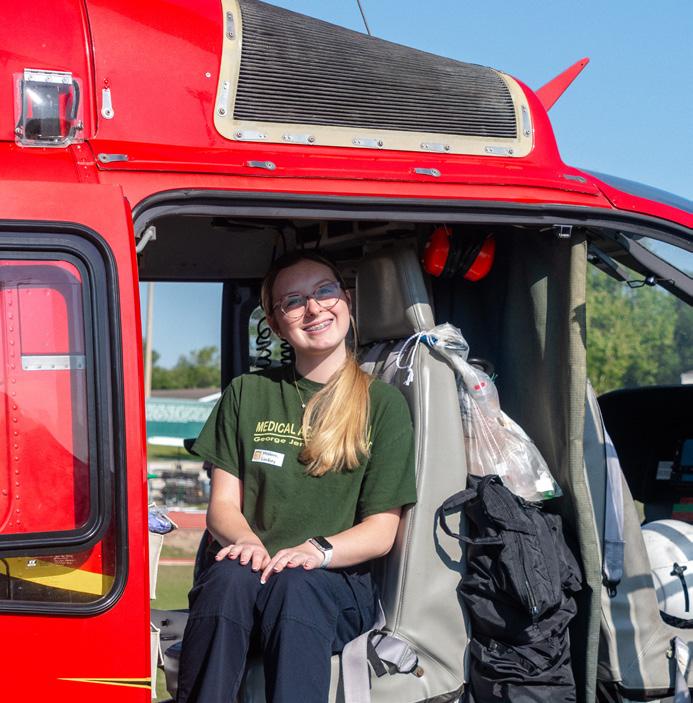

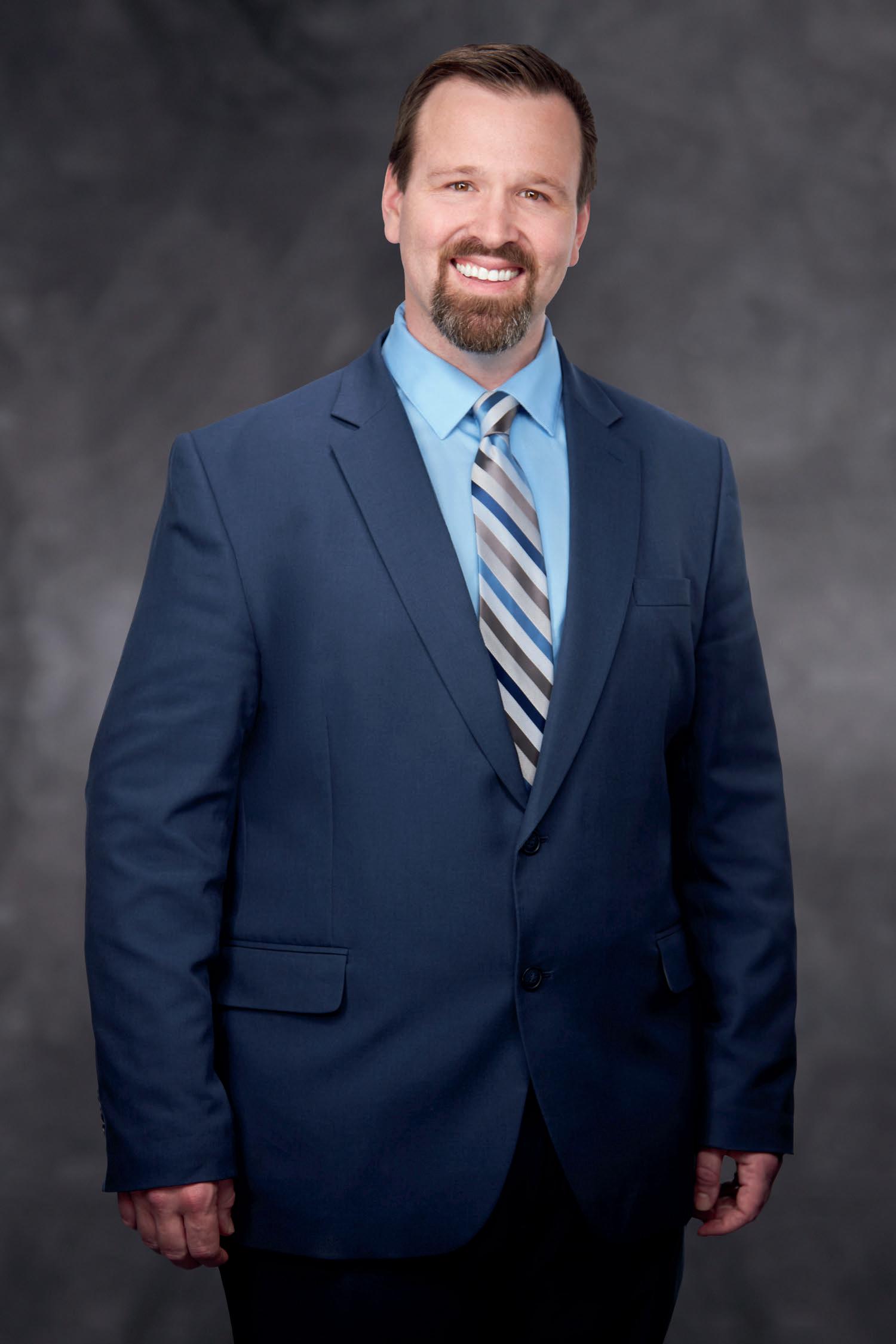
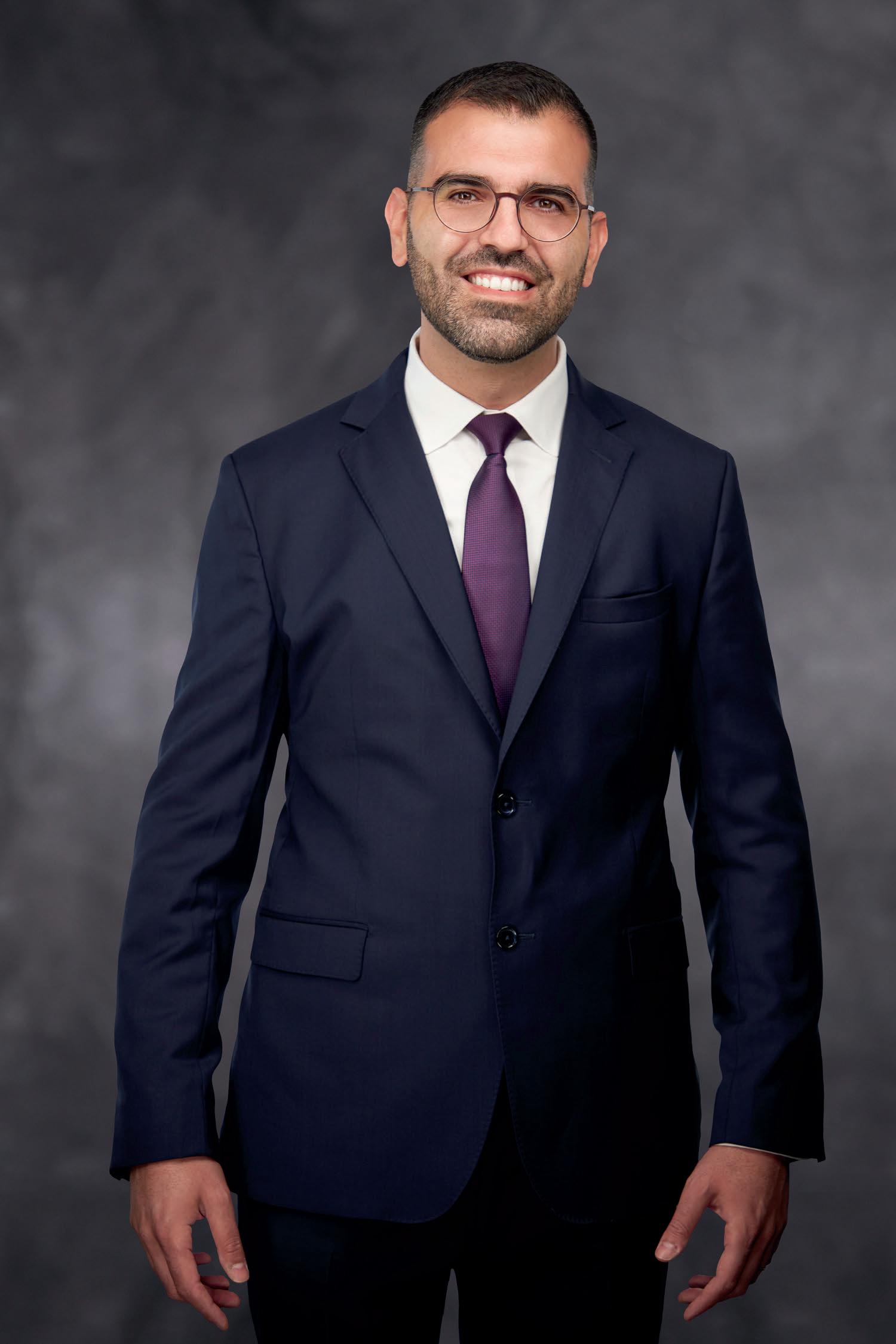


Upper




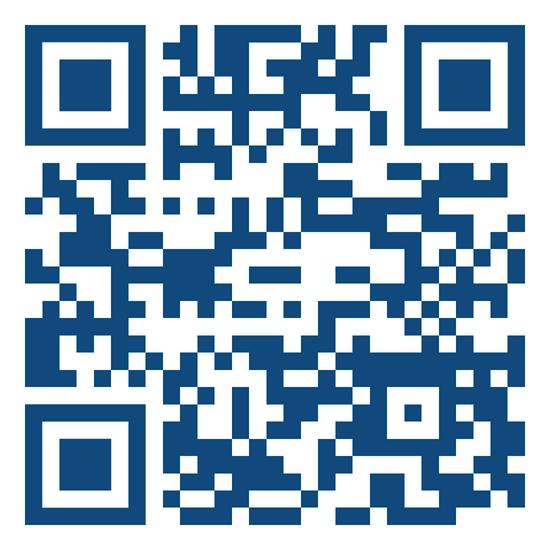

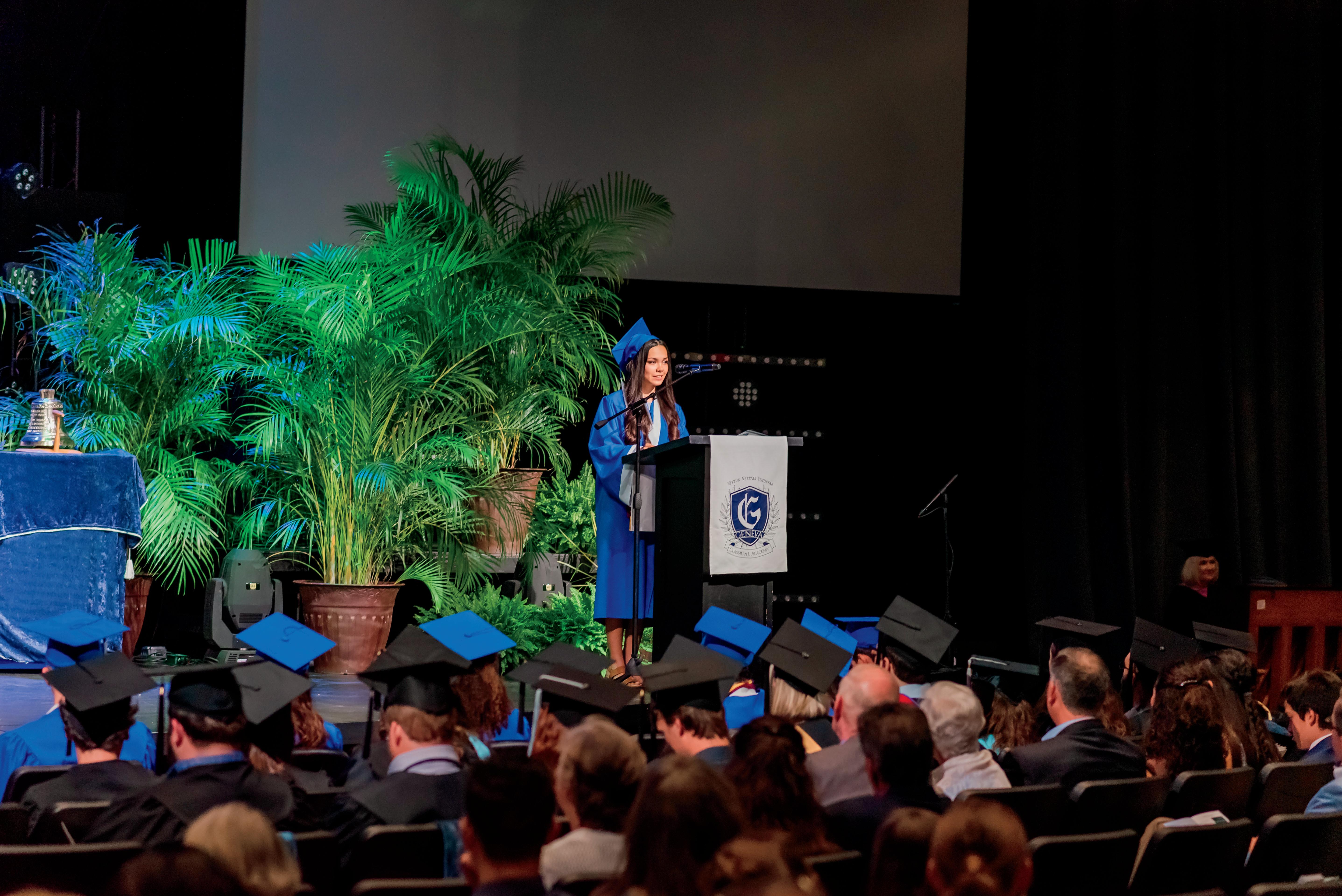

T o d i s c o v e r a p r o v e n m o d e l o f e d u c a t i o n , o n e t h a t w i l l c a p t i v a t e t h e m i n d s o f s t u d e n t s , w e b e g i n b y a s k i n g , " W h o w e r e t h e g r e a t e s t t h i n k e r s o f W e s t e r n c i v i l i z a t i o n ? " T h e a n s w e r l e a d s u s t h r o u g h h i s t o r y , f r o m t h e
G o l d e n A g e o f G r e e c e t o o u r n a t i o n ' s F o u n d i n g F a t h e r s , u n c o v e r i n g t h e i n f l u e n c e s o n o u r l i v e s t o t h i s d a y
A t G e n e v a w e s t a n d o n t h e s h o u l d e r s o f t h e g r e a t e s t t h i n k e r s o f W e s t e r n C i v i l i z a t i o n ,
t h o s e w h o h a v e e l e v a t e d a n d a d v a n c e d t h e
p u r s u i t o f t h e t r u e , t h e g o o d , a n d t h e
b e a u t i f u l W e a l s o s e e k t o i m i t a t e C h r i s t i n a l l w e d o t h r o u g h a c o m m u n i t y o f f a i t h a n d
l e a r n i n g
G e n e v a s e r v e s K 4 - 1 2 t h g r a d e s t u d e n t s
t h r o u g h o u t t h e P o l k C o u n t y c o m m u n i t y W e
a i m t o d e v e l o p y o u n g p e o p l e g r o u n d e d i n a
B i b l i c a l w o r l d v i e w a n d c a p a b l e o f t h i n k i n g
l o g i c a l l y a n d s p e a k i n g p e r s u a s i v e l y C a l l o r
v i s i t o u r w e b s i t e f o r m o r e i n f o r m a t i o n

w w w . G e n e v a C l a s s i c a l A c a d e my . c o m 8 6 3 . 6 4 4 . 1 4 0 8
@g e n e v a c l a s s i c a l
Last year, Lake Gibson High School’s Health Academy took a hit when it lost a teaching unit, a tough reality for a long-standing career readiness program that can be difficult to remedy considering it requires professionals with the skills of a nurse or nurse practitioner who are willing to work on a teacher’s salary. Thankfully, Lakeland Leads and Lakeland Regional Health believed strongly enough in furthering public education and creating a pipeline for future healthcare talent to design an innovative solution.
At Lake Gibson, as well as Kathleen High School, Lakeland Regional Health is providing healthcare professionals an annual stipend to sweeten the pot and to encourage more active healthcare faculty to provide hands-on instruction to the next generation as teachers in local schools.
“Superintendent [Heid] has talked about this…but with Lakeland Regional Health, Lake Gibson High is really the first to supplement income for teachers to recruit and retain the best people for our program so that we can continue that workforce education,” said Ryan Vann, Lake Gibson High School Principal and a proud Braves alum himself. “I explained to [Lakeland Leads President Melody Rider] that if we want to build and grow these programs and we want to be able to push our kids [where] they are able to come out of high school with a phlebotomy certificate or CNA certificate or become EKG certified, we have to have qualified nurses to teach our kids.”
Now, with two RNs and an LPN, Lake Gibson’s Health Academy is set to inspire more teens to take a harder look at the healthcare profession as a potential career path, precisely what the county’s third largest employer would love to see.
“We're really trying to focus on building our workforce and investing in our people. With that I need a pipeline, and the pipeline is the high school students,” said Scott Dimmick, Senior Vice President/ Chief Human Resources Officer for LRH.
LRH has long invested in students with its internship program—which had nearly 150 students immersed in clinical and nonclinical settings this summer—as well as career expos and job fairs.
One of Dimmick’s goals is to help spark students who might feel lackluster
about job prospects by showing them salary ranges and the wide variety of job descriptions that exist in the healthcare industry.
“There are tons and tons of very high paying, very rewarding jobs in healthcare, [and] it’s in huge demand,” he said. “Most of your healthcare companies have great compensation benefit packages and long career prospects…and probably about 80 to 85 percent of our high paying professions only require an associate’s degree in some kind of healthcare specialty.”
It made sense for LRH to partner with Lake Gibson in part because of their proximity to each other and also because Lake Gibson has the highest college and career acceleration point total in the district. Last year, more than 80 percent

of seniors graduated with either a dual enrollment course credit, a certificate, ROTC involvement, etc. The high school also had more than 20 students graduate with associates degrees thanks to dual enrollment courses.
Lake Gibson Assistant Principal Matt Diaz, an LGHS alum, said he’s thrilled to build a long-term relationship with a community health provider that cares for so many Lakelanders.
“As educators here, and especially in charge of the CTE (career and technical education) area, all I want is for our kids to have opportunities as soon as they graduate so they can help our community in the greatest way possible,” he said. “And the Lake Gibson community has a lot of LRH employees who live in this school zone, so it’s a big deal for us.”
Dimmick said he has seen that showing students the opportunities that exist has proven to motivate them to be more engaged, study harder, etc., but the benefit to the schools goes beyond that.
“Part of this process too is collaborating with the school district on whether we would recommend additional curriculum or changes in the curriculum or different educational skill building that may be needed to prepare people for a professional occupational setting like healthcare,” he said.
He said customer experience and satisfaction are mission critical in healthcare, so educating more young adults on best practices is essential. Internally, LRH offers staff the Amazing Patient Experience Learning Academy, where they participate in exercises and training that empower them to deliver the best possible experiences to patients.
Speaking of top-notch experiences, Vann is hopeful that this partnership will help pave the way for other career readiness collaborations between businesses or corporations and the school district.
“I think when people see the success of this partnership it’s going to bring more partnerships along the way. Lake Gibson Middle School also has the Health Academy, so hopefully Lakeland Regional can tap into that and get those kids hooked even earlier to want to be in the Health Academy here.”
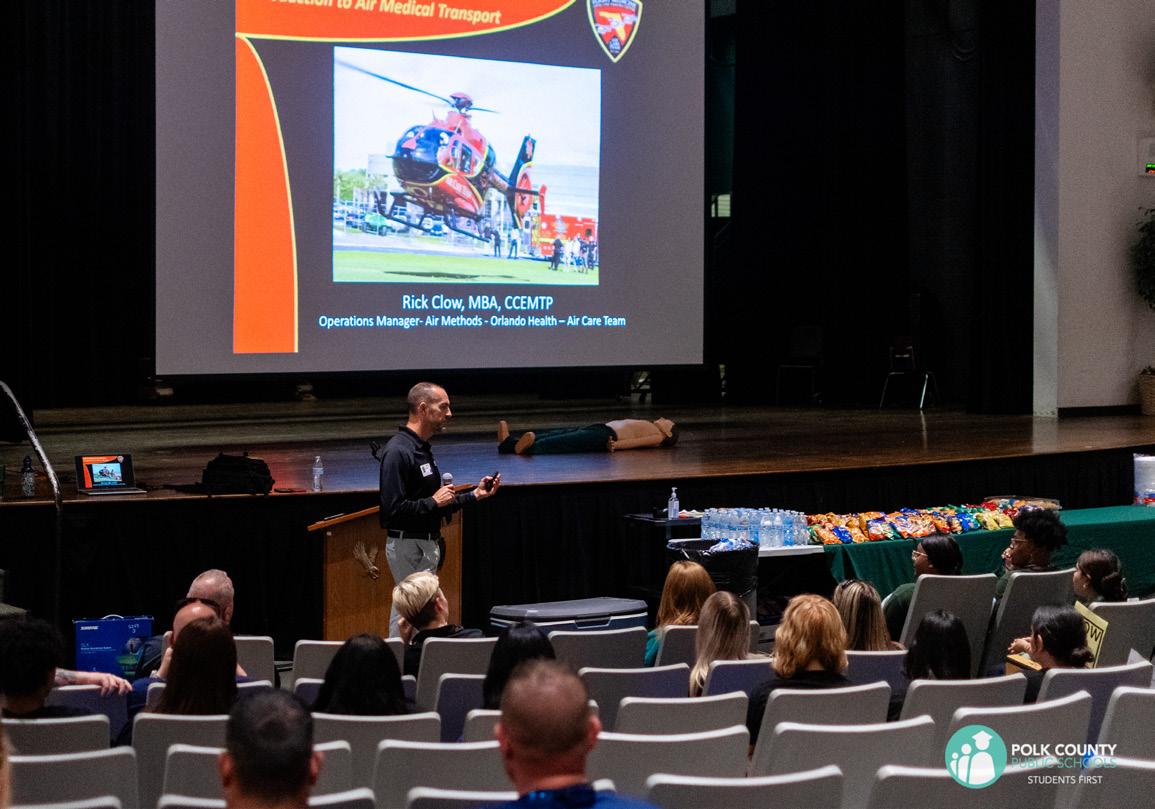
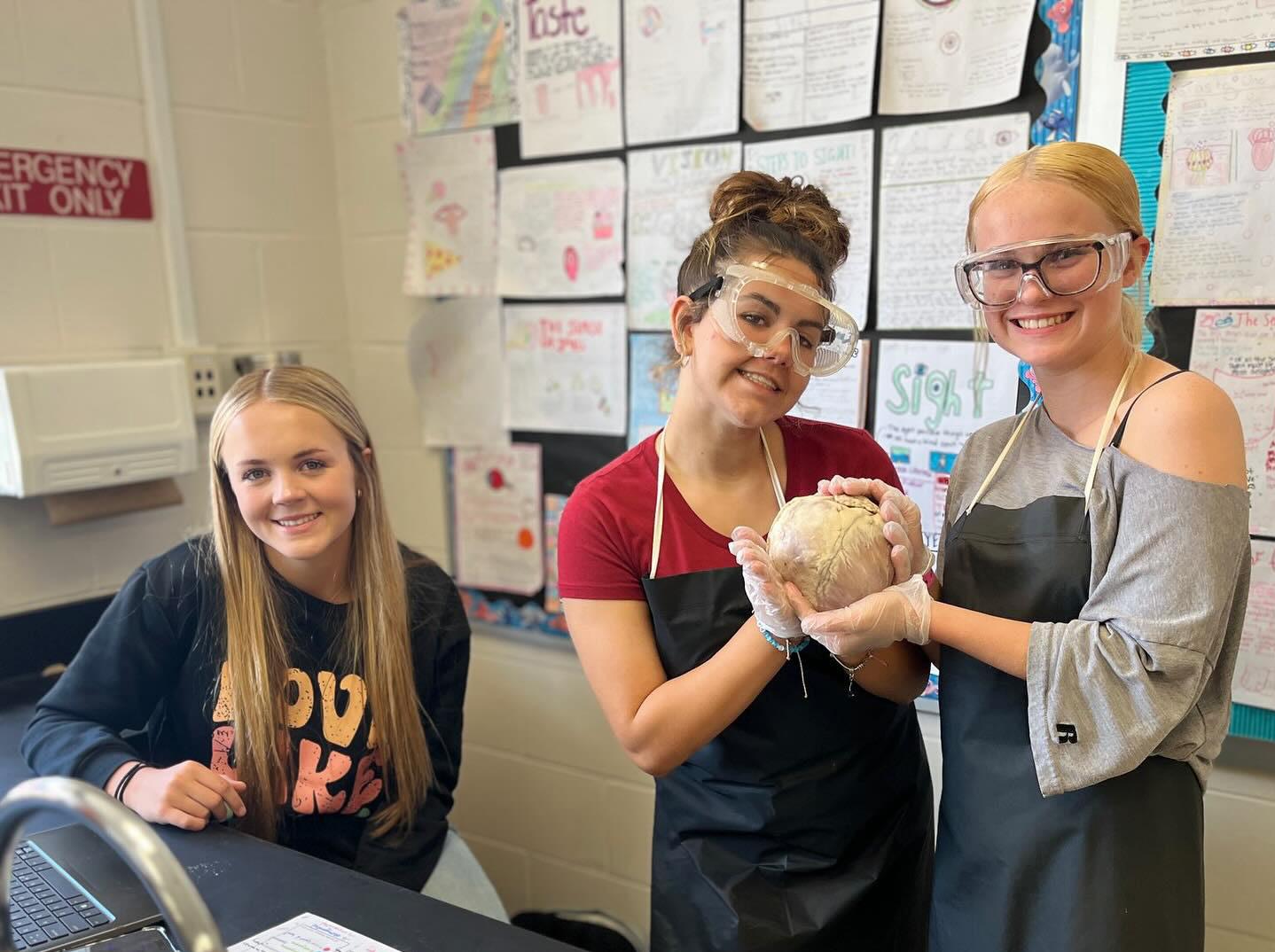
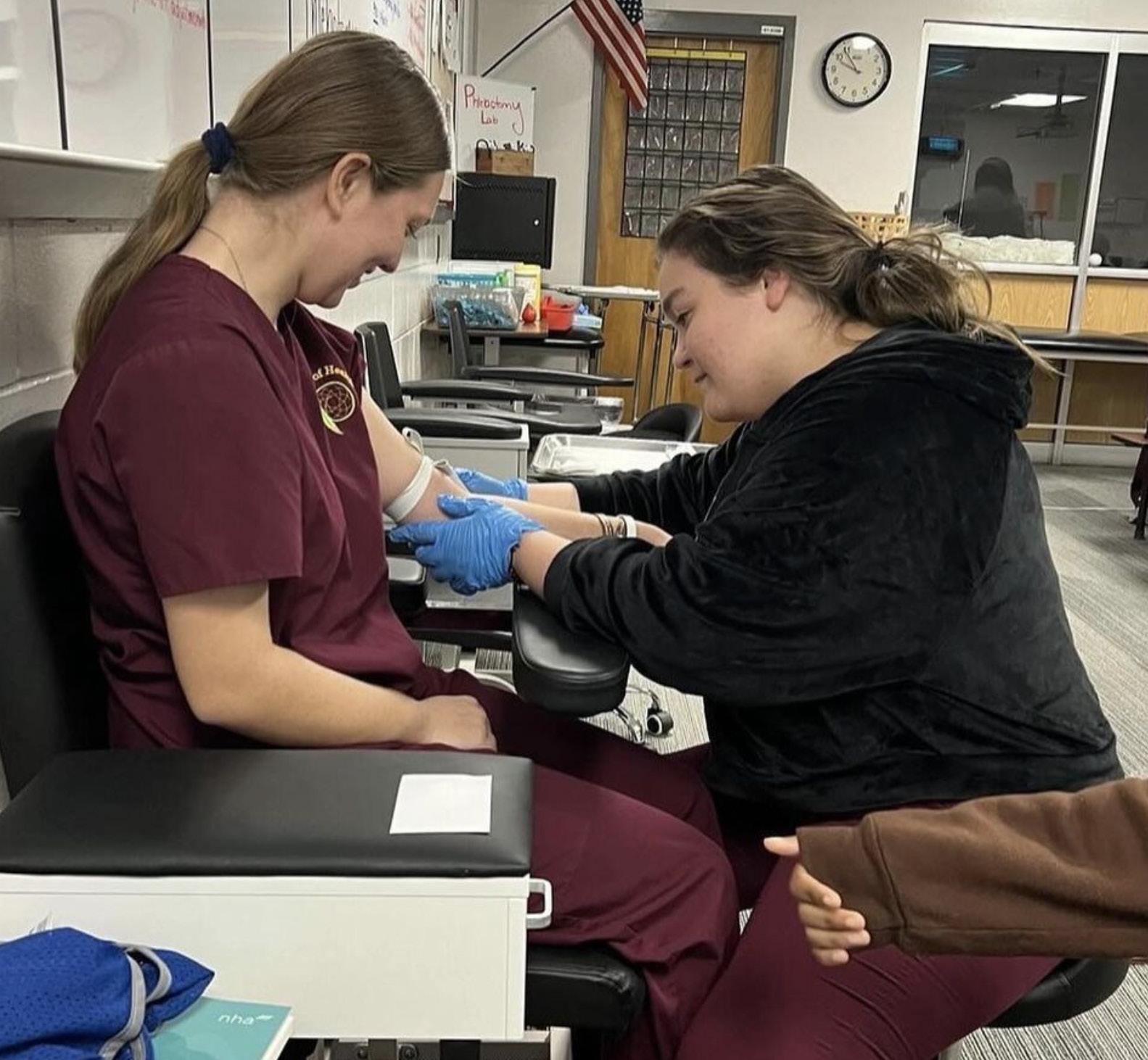
It's a mix of science, patient care and learning how academics and future careers go hand-in-hand at Lake Gibson's Health Academy.


WRITTEN BY RJ WALTERS
Polk County Public School leaders do not have a crystal ball, but when it comes to school start times they have binoculars zoomed in, and what they can see is this: times are changing, and they would like some local control of a statewide mandate to change start times for middle school and high school students.
Gov. Ron DeSantis signed a bill in 2023 that requires school districts by the beginning of the 2026-27 school year to adopt new start times that are no earlier than 8 a.m. for middle schools and 8:30 a.m. for high schools.
Citing the health, safety and academic impacts of sleep deprivation, Florida lawmakers changed the legal time at which public schools in Florida start.
Currently, schools within the district are operating within these start times:
Elementary:7:45a.m.to8:15a.m.
Middle school: 9 to 9:15 a.m.
Highschool:7a.m.
PCPS Superintendent Fred Heid said the district will adhere to the new statute in two school years if it still remains intact, but until then he and other district officials will advocate for flexibility on a rule that would have significant financial and social ramifications for our communities.
“Because of the geographic size of our school district, because of the density in some communities versus rural nature in other communities, I need a minimum of one hour between the elementary and middle school bus routes. But [if] middle school starts at 8 and high school must start at 9, where do I put elementary kids?” he says. “Do they start at 7, which means they're out in the dark at 6 o'clock in the morning at a bus stop? Or do I put them at 10 o'clock? Parents can't do that—they've got to get to work. So now do I have to create early childhood options or childcare options on all of our campuses to supervise kids for an extra hour?”

The logistics of such a change for PCPS are complex and multilayered. The district estimates it would cost an estimated $19 million more per year for adequate transportation for students if the law goes into effect as it stands, and it would impact activities such as athletics and theater, as well as force minors who work to start their shifts later in the afternoon.
Proponents of the bill in the House of Representatives cited a 2014 policy statement titled “School Start Times for Adolescents” from the American Academy of Pediatrics as a basis for the legislation.
“Some of the early research about this is based off a very old study…” Heid argues, mentioning the policy statement. Much of the research in the study was from the early 2000s and some citations were from as far back as 1995.

Heid said he has listened to arguments that changes to start times will improve attendance, create a reduction in the amount of student disciplinary action taken and improve academic outcomes. He acknowledges that you can find some case studies to support that if you “Google” the information, but thus far neighboring counties who have already implemented time changes are not seeing results.
“Last year during one of our conferences I asked [leadership of] Hillsborough County [Public Schools], ‘Did you see any improvements in those areas?’” Heid says. “None."
"Where’s the breakdown when your legislature is holding up multiple districts [as examples of early adoption], but they never bothered to ask the questions, ‘Did it improve anything?’”
Some of the questions being asked, and that will continue to be discussed privately and publicly regarding this issue include:
"Wouldparentsprefermiddleschoolersand elementarystudentsbebussedtogetheror middleschoolersandhighschoolstudents?”
“Howwillitimpactdrop-offandpick-up schedulesoffamilieswithstudentsinmultiple levelsoftheschoolsystem?”
“Howmanymorebusdriverswillthedistrict need to hire?”
Heid said the district already has initiatives that allow high school seniors to start their day an hour later or leave school an hour early if they are on track to graduate, and ultimately he believes school start times should be determined by what’s most beneficial for students, family and staff in each district.
“My biggest aversion to it is…I think it's an erosion of local control,” he says. “I think we're mandating a standardization across the state that doesn't work for everyone.”





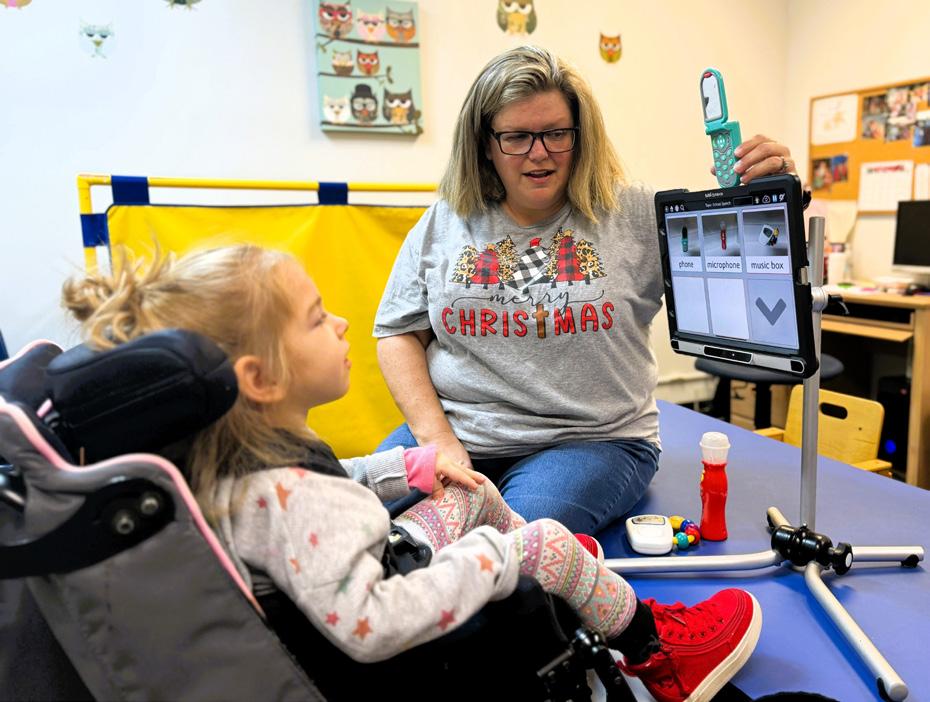
hese kids are worth it and deserve the very best we can offer them."
That's how Achievement Academy President Kristin Aiken, her desk facing pictures of children receiving lifegiving developmental therapy, summarizes the organization's purpose and ethos. The school, whose main Lakeland campus is located just north of Downtown, serves students with special needs, those at heightened risk for developmental delays, and their parents. Achievement Academy's dedicated staff—with strong family partnerships, generous support from grants and private donors, and a lot of heart—provides remarkable education and care to maximize the potential of every student.
Though differentiated education is mainstream now, it hasn't always been so. Schools like Achievement Academy were far ahead of the traditional education system by recognizing a universal approach to students' varying needs and abilities wasn't optimal. The Academy traces its roots to 1956 when a group of Polk County parents established the United Cerebral Palsy School. It received its charter from the Polk County School Board in 1997, making it now one of the longeststanding charter schools in Florida. The current name was adopted in 2004 and currently boasts additional locations in Bartow and Winter Haven, serving over 150 students in all.
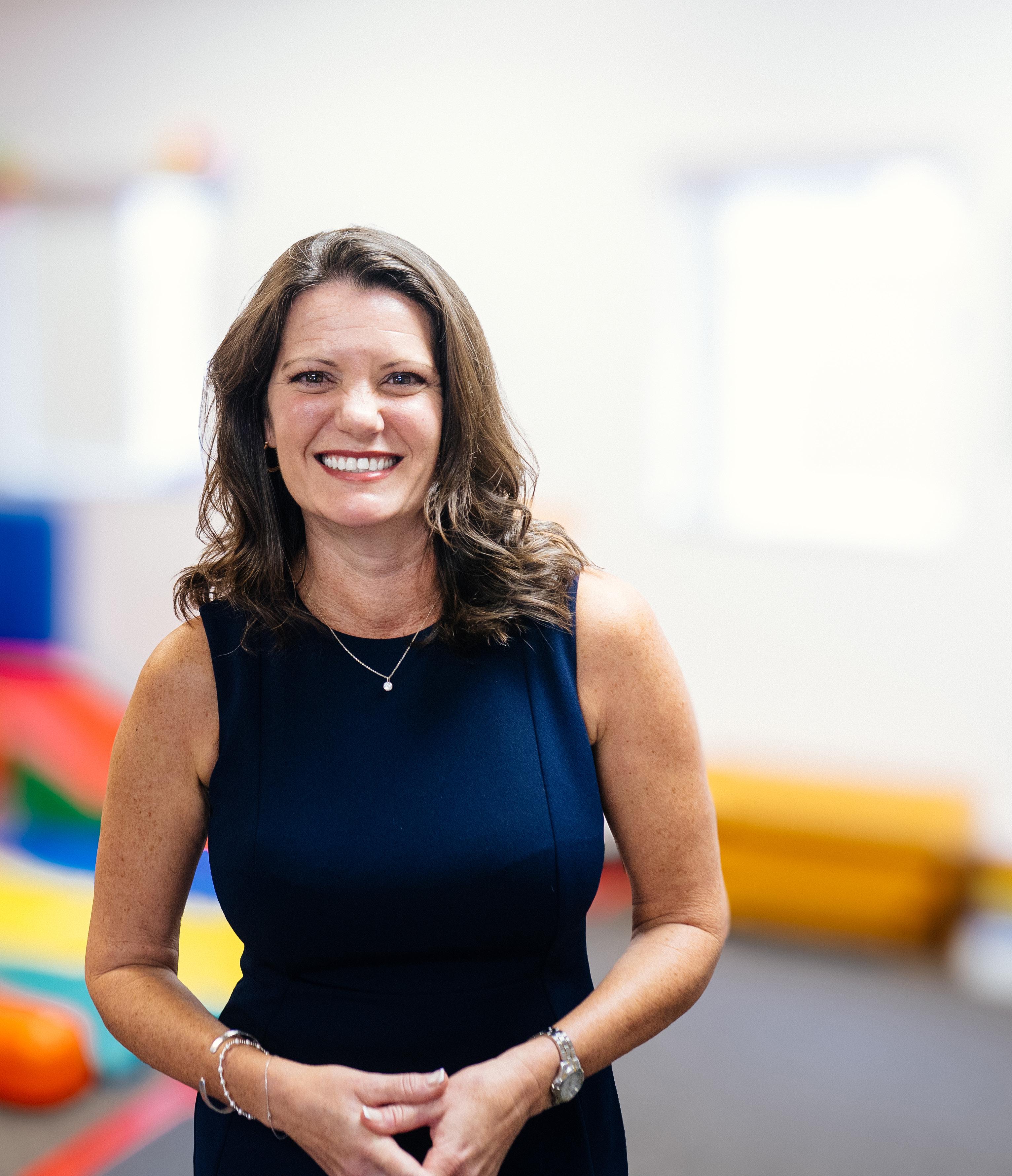
“These kids are worth it and deserve the very best we can offer them."
ACHIEVEMENT
ACADEMY PRESIDENT KRISTIN
AIKEN




Achievement Academy accomplishes its mission through two programs: Birth to Three and Pre-Kindergarten.
"Our Birth to Three early interventionists visit a premature child's home once a month with activities for language, cognitive, social, emotional, and motor skill development. Each of our four early interventionists serve about 60-70 families in 14 Polk municipalities,” Aiken said. “If a family lives in the county and enrolls in services, we will find a way to see them. It's a great way to coach and support parents as they learn strategies for educating their child. We also provide developmental toys, boppy pillows, swaddling blankets, and other materials they'll need."
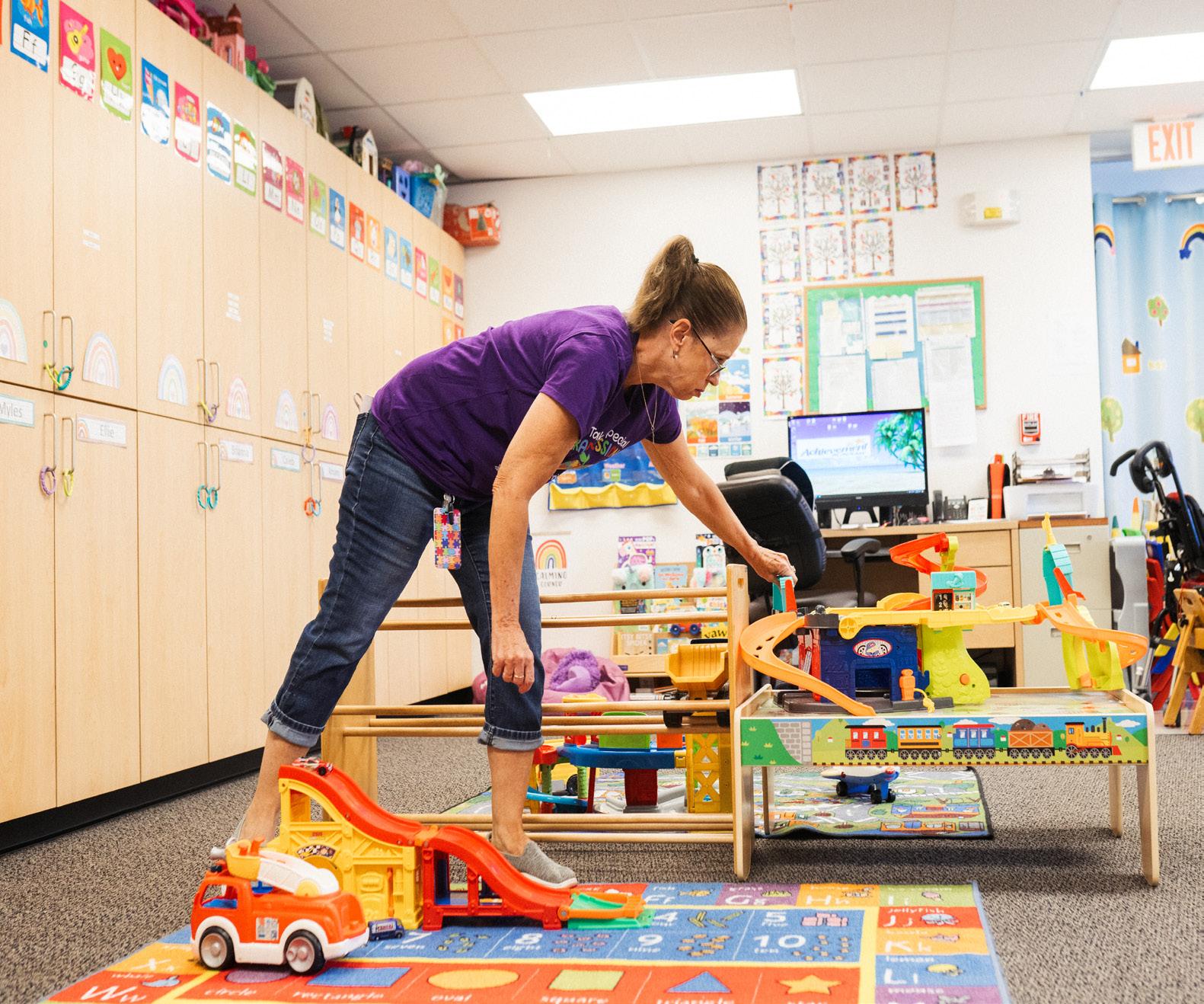
In addition to being a true Pre-K, Achievement Academy's Pre-Kindergarten program offers individual physical, speech, and occupational therapy for children 18 months to 5 years old. A child must show a certain level of developmental delay, but as long as the family resides in Polk, there are no income restrictions and it's free to attend.
“Our ability to provide therapies in individual settings sets us apart,” Aiken said. “You'll often find therapists in the classroom, giving strategies to the classroom teams to augment what each student is doing in therapy.”
Teachers share information about current lessons so therapists can integrate material into one-on-one sessions and together they help students master vital skills.
The success stories made possible through this learning environment—of which there are many—are compelling. Born at 26 weeks weighing just 2 pounds 1 ounce, Daniel Welling is a prime example of a micro preemie (defined as a baby born at or before 26 weeks of pregnancy or weighing less than 28 ounces) that Achievement Academy serves so well.
"It's a great way to coach and support parents as they learn strategies for educating their child."


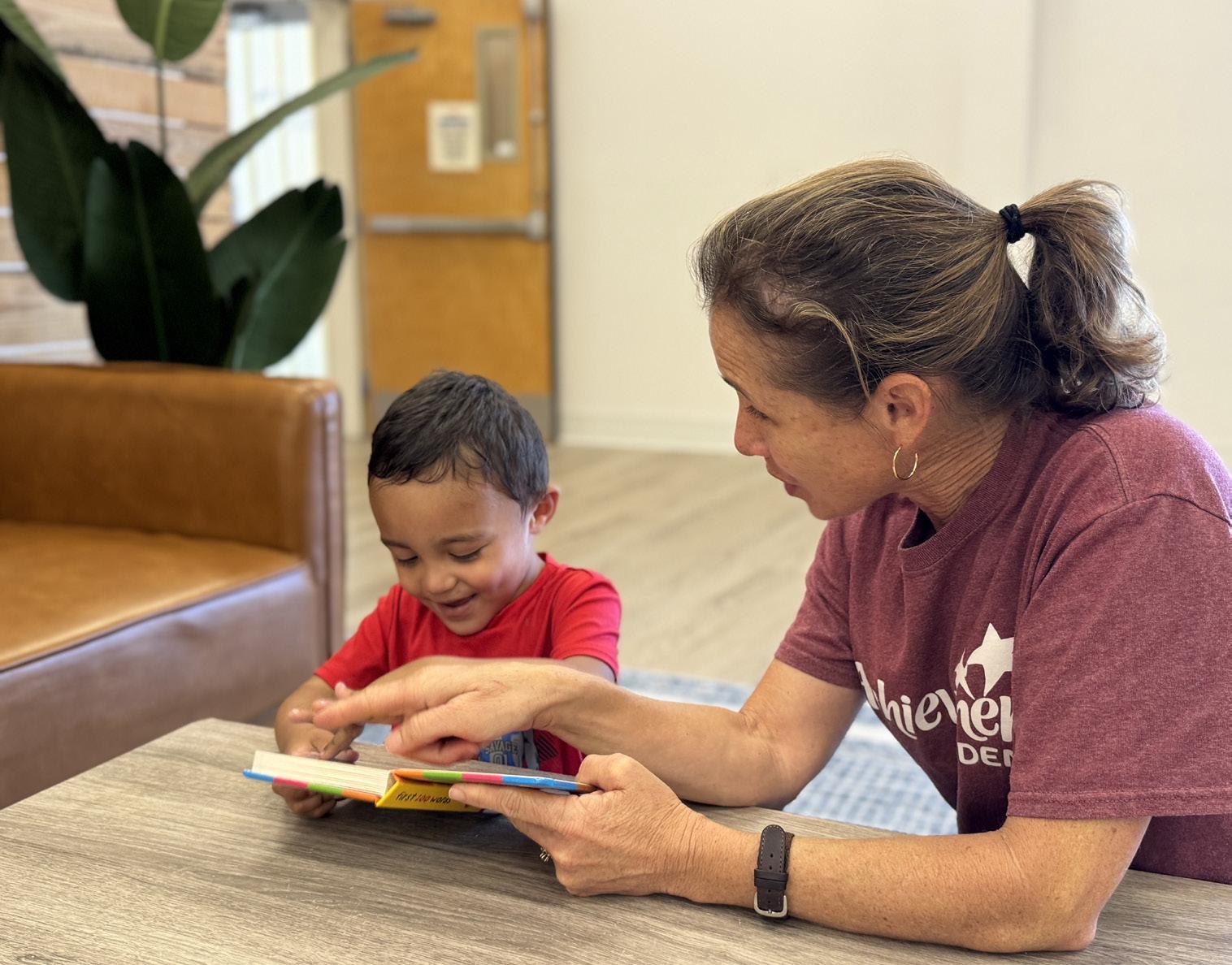
"It really is a forever family."
He received early developmental therapy through USF Early Steps and entered Achievement Academy's Winter Haven campus at age 4, transferring to the Lakeland campus when a spot opened up closer to home. In the year and a half Daniel spent there, parents Jason and Alyssa saw the school's miraculous work. In addition to his need for continued physical and sensory therapies,
"Daniel was both extremely shy in some ways but also very unfocused," Alyssa said. "He needed constant re-direction to concentrate on tasks.
Achievement Academy's teachers were so patient, so kind, so accepting of Daniel.
She noted how the classrooms are constructed in fun purposeful ways that allow kids to feel at home while receiving the therapy they need.
“Because the school welcomes parents, I would visit the classroom and find their work almost unbelievable,” she said. The kids learn how to be good students and good friends, all rolled into this perfect little school."
Daniel, now 19, was able to move on from his experience at Achievement Academy with so many of the skills he needed to be successful at the next level and for the long haul. He recently
graduated from Santa Fe Catholic High School with a 3.2 GPA, and he finished 6th in his class in the mile run at the state championships as a senior, crossing the finish line in a time of 4:24. He is set to attend Florida Southern College in the fall on a cross country scholarship. "It's not only that their intervention was critical for Daniel's development," says his father, Jason, "but our whole family's connection to the teachers, staff, board continues in perpetuity."
That reality aligns well with the fact the school’s mission explicitly includes support of student’s families, recognizing that parents of children at risk of developmental delays or special needs can often feel isolated and scared.
Aiken said that teachers and early interventionists often become part of the families they serve.
“We once did a presentation for United Way where an Achievement Academy parent spoke before the group. The parent's baby began to cry during the talk and the family's interventionist comforted the baby so the parent could continue. It was a lovely moment,” she recalls.


The staff member who leads support services for families knows just how important that sense of community is because her own children attended Achievement. Throughout the year she schedules special events such as potty training by an autism specialist and monthly coffees at each of our campuses for parents to ensure families know they are never alone.
As with most non-profits, Achievement Academy's biggest need is funding.
"The service level we provide far exceeds our funding from the district as a charter school, but it's crucial to continue because we see the effectiveness of our model. I spend a lot of time writing grants and promoting our biggest annual fundraiser, Top Chef,” Aiken says, “We're so very fortunate that Lakeland is a generous community. Whether it is our many corporate sponsors including Publix and Geico or independent groups and individuals who are passionate about early childhood development, Lakeland has supported Achievement Academy financially as well as with sweat equity. We love the opportunity to show people the truly lifechanging differences we can make together."
Aiken doesn't see the need for Achievement Academy's work waning as demand already exceeds the organization's capacity already with Lakeland's population continuing to grow, and an estimated 10 percent of births in Polk County being premature.


"Last year we had 500 referrals and we have a long waiting list for the charter school. My dream is to have a state-of-the-art facility that can accommodate every family on the waiting list as well as an expanding room for staff members who have to creatively share space right now. The larger space would allow Achievement Academy's community to grow stronger, perhaps bringing our Birth to Three families from home to a group setting, for example."
When it comes to mitigable risk factors for developmental delays, Aiken stresses the importance of prenatal care.
"A low level of prenatal care is a risk factor, so it's critical to educate expectant mothers about nutrition and healthy habits . During the first three years, including in utero, a child's brain has the capacity to develop at a rate of about one million connections per second. Good prenatal care supports that development,” she said.
She urges parents of premature children to seek early intervention so that they can have assistance to help children work toward developmental milestones.
“We often get referrals for the NICU so that we can start working with premature babies right away,” she said. “There's no cost to enroll or participate in the home program. If a parent or family isn't sure if they're seeing a developmental delay, they can call and self-refer to our program."

To learn more about Achievement Academy's incredible work, including ways to support it, please visit: achievementacademy.com
Leader in anterior hip replacement in Central Florida since 1991
Less-invasive surgery for the active patient looking for a quick recovery and a quicker return to work
Leader in anterior hip replacement in Central Florida since 1991
Less-invasive surgery for the active patient looking for a quick recovery and a quicker return to work.





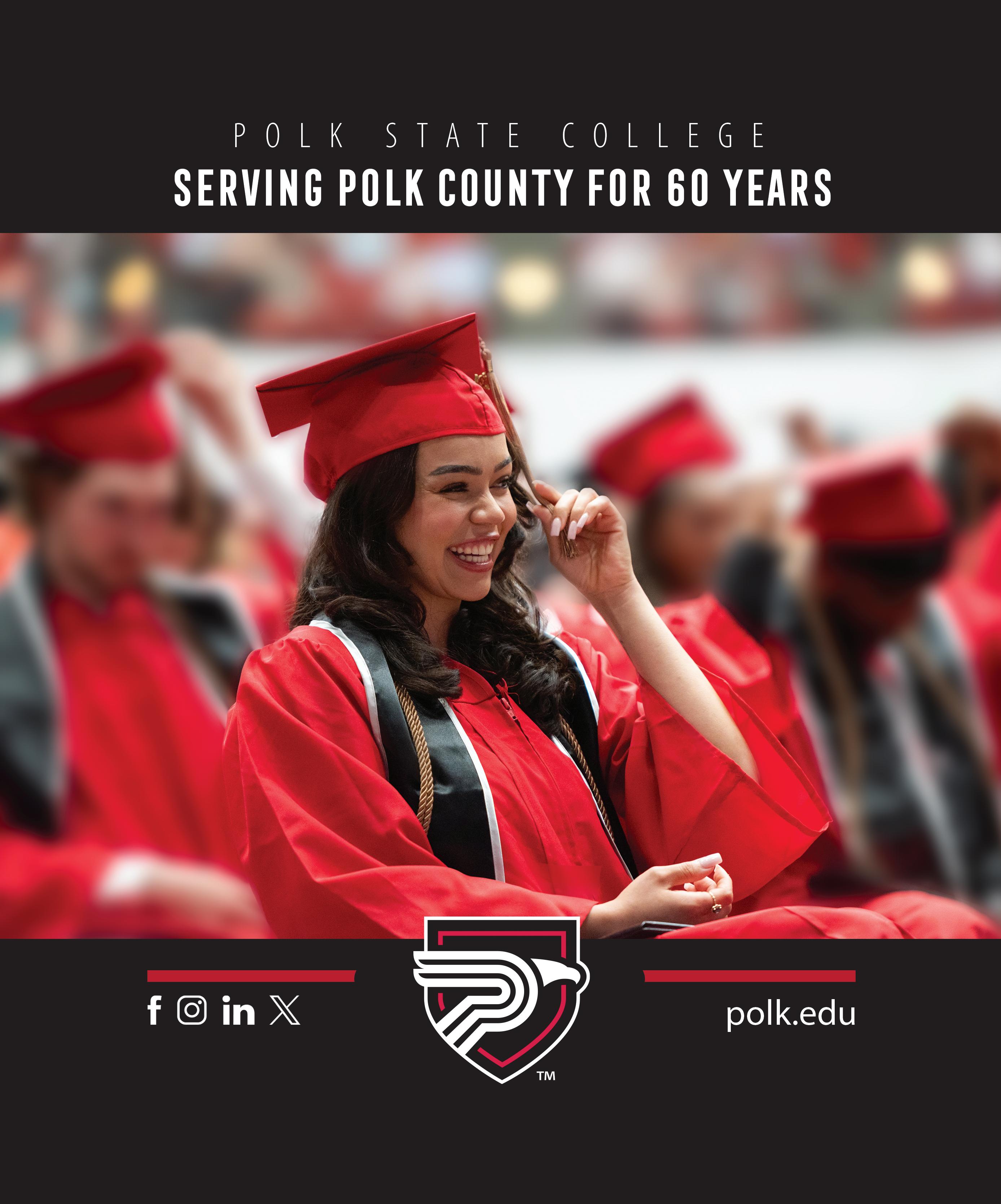


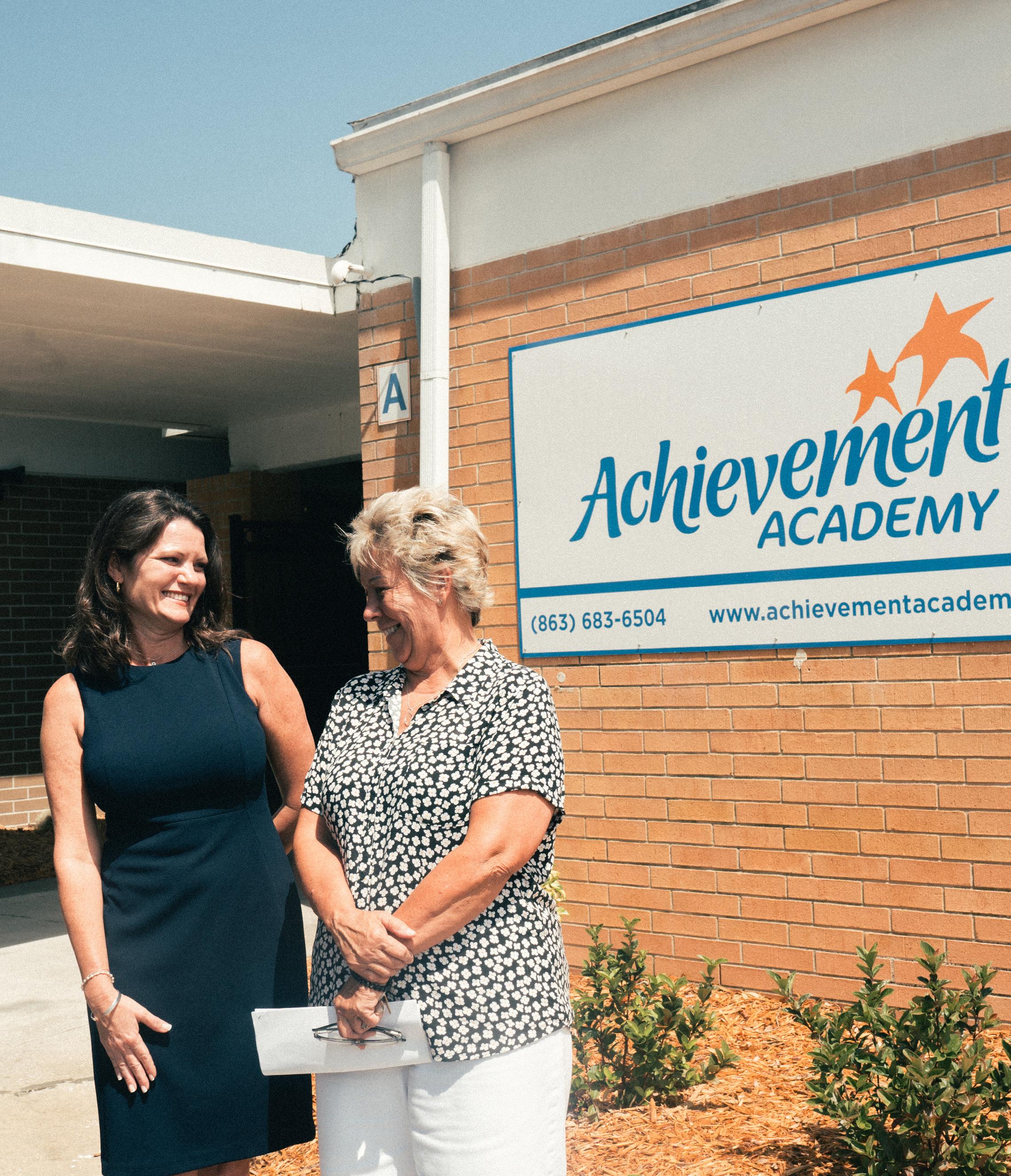




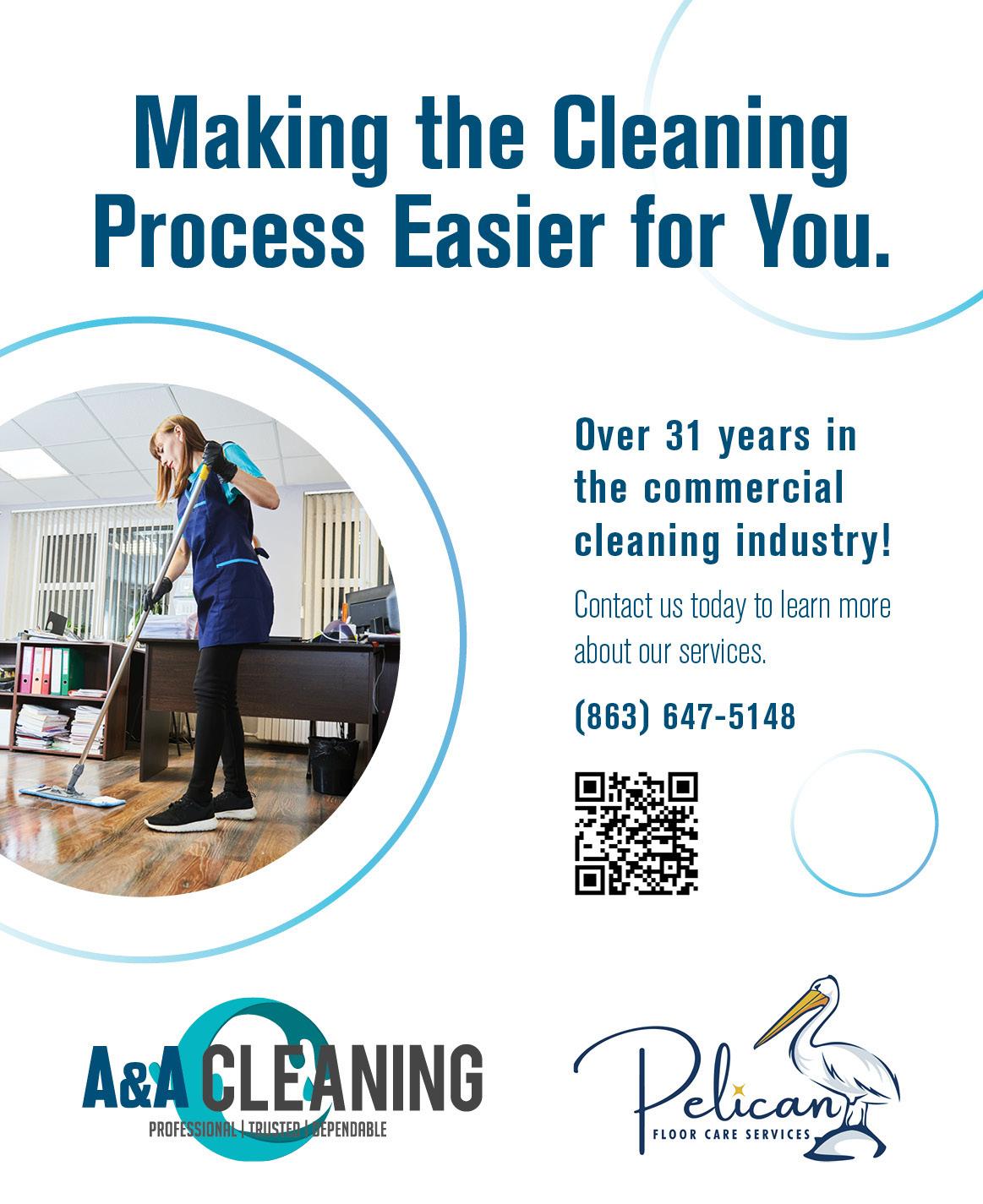











The North Florida campus of Lakeland Surgical & Diagnostic Center, located at 1315 North Florida Avenue in Lakeland, is now called the Watson Clinic Surgery Center. This location offers exceptional outpatient surgical care across a number of specialties, including general surgery, gastroenterology, breast surgery, orthopaedic/hand surgery, urology, plastic and reconstructive surgery, and many others.








